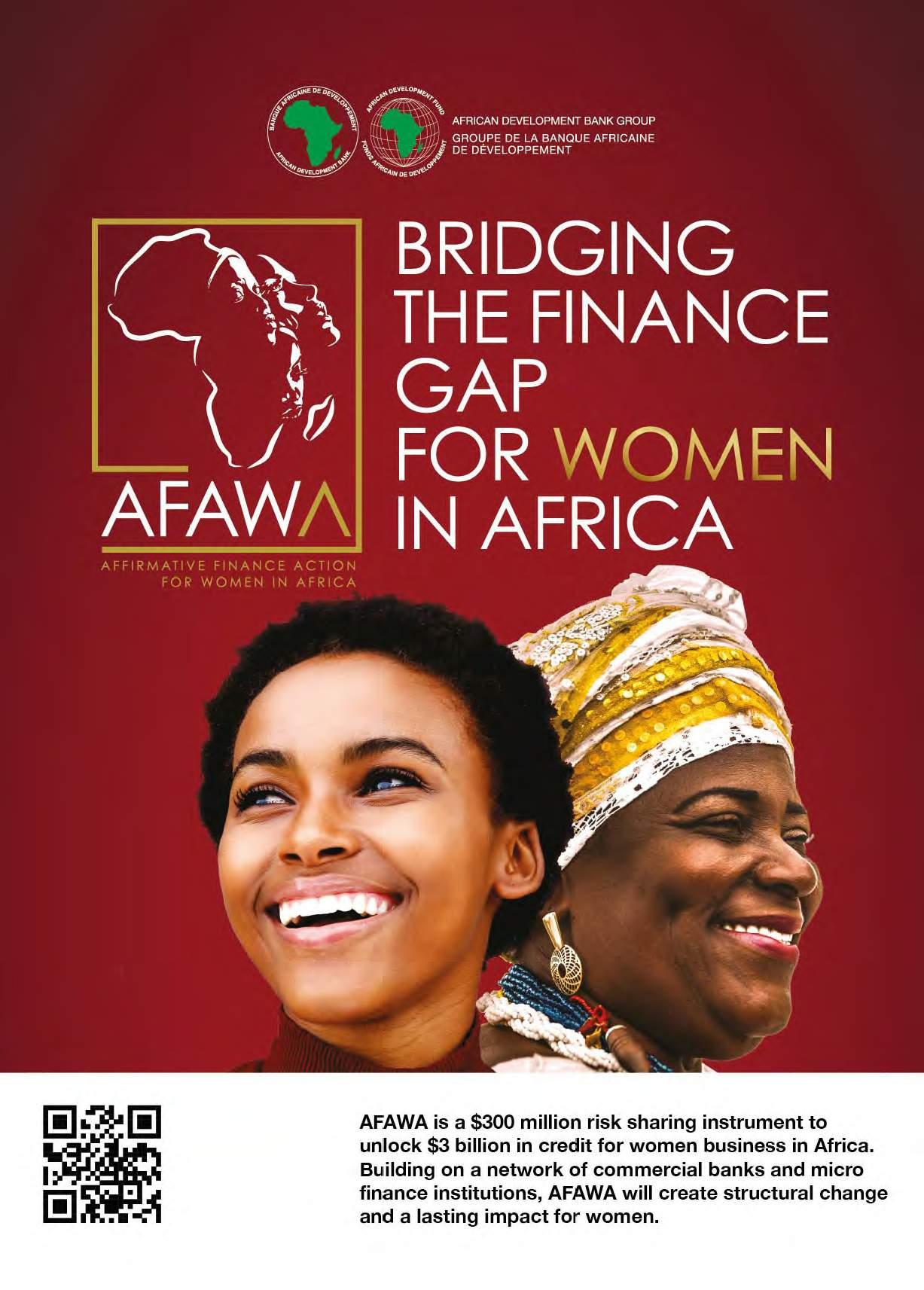Leadership Afric n
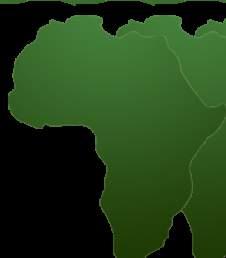
LULA DA SILVA
Promoting African dignity & opportunities globally FEBRUARY 2023

67.
10. The 2022 Persons Of The Year Profile Compilation
13. Africa Union Summit: Botswana Banks On Agriculture For Diversification
15.Brazil-Africa Forum: A Partnership Renewed
20. President Bio Wants Newly Crowned Paramount Chief To Lead By Example
22. Seizing the Agri-food Opportunities in East Africa
24. 2023: Frontrunners in Nigeria's Election

27. Top 10 Nuggets Of Successful Entrepreneurs
32. Ghana's Journey To Economic Recovery
Contents AFRICAN MAGAZINE LEADERSHIP www africanleadershipmagazine co uk
Modern
of Education
African
59. Adopting
Models
for
Institutions
41. Building Generational Businesses Is Critical To Africa's Growth
34. Improving the Development of Small-scale Farming In Sub-Saharan Africa
Building A Resilient
For Africa
49. Building Excellence In Africa's Education A Way Forward For Excellence In Education: Ghana Correspondent 63. Beyond Cop27:
Climate Change Agenda
COVID-19: Over 76 million Nigerians Vaccinated Says Health Minister
38. The Rise of E-commerce In Africa
29
44. Catch Them Young – How To Position The Young People For Effective Climate Action In Africa
04 P A G E 57
Afric n Leadership Magazine
...A Publication of The African Leadership Organization
Ken Giami
Founder & Executive Chairman
Group Managing Editor - Kingsley Okeke editor@africanleadership.co.uk
Group Head, Editorial & Content Development - King Richard king.richards@africanleadership.co.uk
Head of Creatives - Joseph Akuboh A. Editorial Board
Peter Burdin, London UK - Chair
Nwandi Lawson, Atlanta USA - Member
Simon Kolawole, Lagos Nigeria - Member
Peter Ndoro, SABC EditorJohannesburg - Member
Frenny Jowi, Nairobi Kenya - Member
Brig. Gen. SK Usman Rtd., Abuja Nigeria - Member David Morgan, Washington DC USA - Member

Furo Giami - Chief Operating Officer / Executive Director
Boma Benjy - Iwuoha - Group Head, Finance & Administration
Sasha Caton - Manager, UK & European Operations
Ehis Ayere - Group Head, Sales & Business Development
Izuchukwu Samuel Ukandu - Manager, Client Relations & Partnerships
Amana Alkali - Executive Assistant to the Chairman
Samuel M. Elaikwu - Manager, Sales & Business Developments
Happy Benson - Director of Operations North America
Christy Ebong - Head, Research & Admin - North America
Stanley Emeruem - Business Development Managers
Muna Jallow - West African Rep for The Gambia and Senegal
Oluwatoyin Oyekanmi - Head, South African Bureau
Bernard Adeka - Head, Nigeria SS/SE
CORPORATE HEADQUARTERS
Portsmouth Technopole, Kingston Crescent, Portsmouth PO2 8FA, United Kingdom; t: 44 23 9265 8276 | fax: +44 (0)23 9265 8201 | e: info@africanleadership.co.uk w | www.africanleadershipmagazine.co.uk
AFRICA & REGIONAL REPRESENTATIVES
Abuja Accra Atlanta Banjul Bujumbura Freetown Johannesburg London Monrovia Nairobi Washington DC
ISSN 2006 - 9332
While great care has been taken in the receipt and handling of materials, production and accuracy of content in the magazine, the publishers will not take responsibility for views expressed by the writer
JOIN THE CONVERSATION
www.africanleadershipmagazine.co.uk
FOLLOW US ON SOCIAL MEDIA

Facebook: African Leadership Magazine

Twitter: @AfricanLM
Instagram: @africanleadershipmag
LinkedIn: African Leadership Magazine

YouTube: African Leadership Magazine
...Identifying, Celebrating & Enabling Excellence in Africa

AFRICAN MAGAZINE LEADERSHIP www africanleadershipmagazine co uk
05 P A G E
WHAT NOTABLE LEADERS ARE SAYING ABOUT AFRICAN LEADERSHIP MAGAZINE






“It is always an honour to be in the companyofsuchdistinguishedfellow Africans, that the African Leadership Magazine events bring togetherAfricans who have committed their lives to changing the negative narrativeaboutourcontinent.”
“It is very gratifying that we now have an organization like African Leadership Magazine, which endeavors to promote good governance and impactful leadership in Africa - bring the best of Africa to theglobalstages.”
“African Leadership Magazine has become a brand for Africa and I am pleased to be associated with it especially because of the caliber of AfricanLeadersonitʼsboard.”
“I wish to express my sincere thanks and deep appreciation to the African Leadership Magazine for the work that it is doing on the continent, and especially in advancing the cause of small Islands Developing states, Any effort aimed at increasing the visibility of the good workbeing done by leadership in Africa does positively impact on the continent and that is what the African Leadership Magazineisdoing.”
“I am delighted to be associated with the sterling work that the African Leadership Magazine is doing on the continent. Democratic governance is the elephant in the room, and the continent needs to reaccess its governance systems. The agenda on global sustainable development shows that Africans are lagging behind. Africa will need to reinvent its governance system with its youth growingpopulation.”
H.E. JOHN MAHAMA Fmr. President of Ghana
H.E. MRS. AMEEN GURIB-FAKIM Fmr. President of Mauritius
H.E. JAMES A MICHEL Fmr. President of Seychelles
H.E. ERNEST BAI KOROMA Fmr. President of Sierra Leone
DR. GOODLUCK JONATHAN Fmr. President of Nigeria
“I believe people are more important than power and anything that promotes good people and leadership is what we need in Africa, and that is what African Leadership Magazineisdoing.”
AFRICANLEADERSHIPMAGAZINE www africanleadershipmagazine co uk 06 P A G E
H.E. JOHN KUFOUR Fmr. President of Ghana
“I feel deeply honored to be associated with the African Leadership Magazine as it is a veritable platform to honor true service in Africa. I commend your efforts and assure you of my continued support and the support ofthegoodpeopleofLiberia.”
“African Leadership Magazine is doing a wonderful job of speaking for Africa and Africans. The magazine remain a good example of what young people in Africa can do in the world. Best wishes in keeping the Africandreamalive.”

“It is an honour to participate at this African Leadership Magazine's 2020 Ceremony, and I commend the magazine's focus to reshape positively, the dominant narratives about the African continent, especially towards the pursuit of peace-building and democracy on thecontinent”

“I thank you so much, African Leadership Magazine for the great work that you are doing for the continent. Your tradition of awarding excellence as I have seen in the line up of African Leaders who have received the African Leadership Awards, is something ver y commendable”

“The future of African people and improving the quality of Leadership on the African continent is my vision and I find in African Leadership Magazine - a true partner I am also happy that the African Leadership Awards is doing at a lower level, what I intend to achieve at the Head of State level. That is why I flew to Paris just to be a part of what you are doing here at the African Leadership Magazine”
“The African Leadership Awards truly captures the essence of my message which is that, success shouldnʼt be solely defined by wealth. It should be about the positive impact and influence that one has had in his community”


WHAT NOTABLE LEADERS ARE SAYING ABOUT AFRICAN LEADERSHIP MAGAZINE
DR. MO IBRAHIM Founder, Mo Ibrahim Foundation
MRS. ELLEN JOHNSON - SIRLEAF Nobel Peace Prize Winner & Fmr. President, Republic of Liberia
MO DEWJI Tanzania Businessman & Philanthropist
H.E JAKAYA KIKWETE Fmr. President of Tanzania
AFRICANLEADERSHIPMAGAZINE
H.E DAVID MABUZA Deputy President Republic of South Africa
www africanleadershipmagazine co uk 07 P A G E
DR. AKINWUMI ADESINA President, African Development Bank




11th POTY: A Collection of Avant-gardes

From pioneers to change makers, the 11th edition of the African Leadership Magazine Persons of the Year list is a rich collection of avantgardes, whose love for the continent is helping to reshape the continentʼs narrative globally. The African Leadership Organization, publishers of African Leadership Magazine unveiled this yearʼs list amidst enthusiasm.
In his remarks during the unveiling ceremony, the founder and Chairman of the African Leadership organization, Dr Ken Giami, stated that, “Africa has traditionally been the cradle of great leadership; from Nelson Mandela, Kwame Nkrumah, Steve Biko, to Julius Nyerere, the continentʼs contribution to leadership philosophy remains indelible. However, a new leadership paradigm is evolving in the continent – they are the new Changemakers.” Continuing, the chairman, added that, “our nominees are Changemakers, who have chosen to push through with their vision to build and bequeath an Africa that works for all to the next generation.”


“Our winners see progress, where others see retrogression; they see possibilities in the midst of challenges. They are on a mission and are eager to lead Africa to the promise land,” he said.

The African Leadership Magazine Persons of the Year Awards is Africaʼs premier vote-based endorsement, reserved annually for the leading Africans who are contributing towards promoting the continentʼs progress, and positively altering Africaʼs perceived negative image. The annual event has also become a platform for honouring people-centred leadership and Africans that are pursuing a pan-African agenda in their chosen fields of endeavour



Below are the winners and a brief profile on their leadership strides:


10 P A G E INTERNATIONAL RELATIONS AFRICAN MAGAZINE LEADERSHIP www africanleadershipmagazine co uk
1.
AFRICAN
OF THE YEAR 2022
H.E DR. JULIUS MAADA BIO
Julius Maada Bio is the current president of Sierra Leone.
Born on 12th May 1964, President Bio completed his primary, secondary and undergraduate education in Sierra Leone after which he ventured into the public service as a teacher before joining the Sierra Leone Army where he rose through the ranks to the position of Brigadier.
He served in various capacities as: Chief Secretary of State, Chief of Defense Staff, Minister of Information, Minister of Marine Resources, Deputy Head of State, and ultimately Head of State of Sierra Leone from January to March 1996.
As Head of State in 1996, President Bio presided over the conduct of the first democratic elections in Sierra Leone in nearly three decades.
Presently in Sierra Leone, President Julius Maada Bio is popularly referred to as the “Father of Democracy” because of his outstanding contribution towards the restoration of democracy and attainment of peace in the country

2. AFRICAN FEMALE LEADER OF THE YEAR 2022
Dr Ngozi Okonjo-Iweala
Ngozi Okonjo-Iweala is the seventh Director-General of the World Trade Organisation, WTO
Dr. Okonjo-Iweala is a global finance expert, an economist, and an international development professional with over 30 years of experience which spans across continents.

She has served on the boards of various organisations such as Gavi, the Vaccine Alliance, Standard Chartered PLC and Twitter Incorporated.
Dr. Okonjo-Iweala was a twotime Finance Minister in her home country, Nigeria, and also served as
Minister of Foreign Affairs.
She had a career with the World Bank spanning 25 years as a development economist where she rose to the position of Managing Director, Operations.
3. AFRICAN EDUCATIONIST OF THE YEAR 2022
Dr. GETRUDE NWANGALA AKAPELWA
Dr. Gertrude Nwangala
Akapelwa is the Founder and ViceChancellor of the Victoria Falls University of Technology, Zambia which she helped establish in 2002.

Dr. Akapelwa has 49 years of working experience in leadership, strategic management, and operational functions in various key sectors of the economy
She served as the Chairperson of the Zambia ICT Authority Board, the regulator of the ICT sector in Zambia and also served the African Development Bank (ADB) in different capacities for 23 years, in Ivory Coast and Tunisia.
4. AFRICAN INDUSTRIALIST OF THE YEAR 2022
Patrice Motsepe.
Patrice Tlhopane Motsepe is a South African businessman and entrepreneur
He is the Founder and Executive Chairman of African Rainbow Minerals, ARM.
Motsepe made his fortune through mining interests which expanded to a successful multifaceted mining company, ARM, which has investments in gold, ferrous metals, base metals, and platinum.

He sits on several company boards, including being the nonexecutive chairman of Harmony Gold, the world's 12th-largest gold mining company while his firm, African Rainbow Minerals, controls 19.8 percent of Harmony
5. AFRICAN POLITICAL LEADER OF THE YEAR 2022
11 P A G E INTERNATIONAL RELATIONS AFRICAN MAGAZINE LEADERSHIP www africanleadershipmagazine co uk
H.E Dr. Julius Maada Bio
Dr Ngozi Okonjo-Iweala
Dr. Gertrude Nwangala Patrice Motsepe
H.E. Hakinde Hichilema, President of Zambia
Hakainde Hichilema popularly referred to as President H.H. is the current Zambian President.
The 50-year-old businessman came into power in 2021 after having contested five previous elections in 2006, 2008, 2011,2015, and 2016.
Under his leadership, Zambia has recorded several successes, from the introduction of free education at the primary and secondary levels to a substantial increase in the Constituency Development Fund to upholding the rule of law and respecting human rights and freedoms.
6. AFRICAN PHILANTHROPIST OF THE YEAR 2022
Tsitsi Masiyiwa.

Tsitsis Masiyiwa is a social entrepreneur devoted to empowering young Africans with educational opportunities and access to technology
She is the Executive Chairperson and co-founder of Higher Life Foundation Zimbabwe.
In the last two decades, Masiyiwa through the Higher life Foundation has supported the education of over 250,000 vulnerable students in Zimbabwe, Burundi, and Lesotho.
She is also the lead organizer of the African Gender Initiative, a network targeted at uniting African philanthropists behind the common goal of advancing gender equality across the continent.
7. EMERGING AFRICAN LEADER OF THE YEAR 2022
Emma Theophilus.
Emma Theophilus is the Deputy Minister of Information, Communication, and Technology, in Namibia.
Her appointment as deputy Minister came at age 23 making her one of Africa's youngest ministers.

She is a board member of Namibia's National Council for Higher Education and has a law degree from the University of Namibia as well as a Diploma in African Feminism and gender studies from the University of South Africa.

8. AFRICA PEACE & SECURITY LEADER OF THE YEAR 2022
Yankuba Drammeh.
Yankuba Drammeh is a Gambian military officer and is also the current Chief of Defence Staff of Gambia.
His military career saw him rise to the rank of Brigadier General and Deputy Chief of Defence Staff before he was dismissed from the army by Yahya Jammeh on 30th November 2009 but was later reinstated in December of the same year as a Major General after being cleared of any wrongdoing.

Reassigned from the military, Drammeh also served his country in the diplomatic service as Ambassador to Turkey and then as Consul-General in New York before going back to the military
9. AFRICAN ENERGY LEADER OF THE YEAR 2022
Patricia Simon-Hart.
Patricia Simon-Hart is the founder and Managing Director of Aftrac Limited, an oil and gas service company that has been operational for over 20 years.
She is also the Secretary to the Executive Board of the Petroleum Technology Association of Nigeria (PETAN), and a co-founder and Vice President of Women in Energy Network
Patricia has over 30 years of experience in Management, Public Policy, and Administration. She began her career in the Information and Communications Technology sector after which she set out to establish her own oil service company
12 P A G E INTERNATIONAL RELATIONS AFRICAN MAGAZINE LEADERSHIP www africanleadershipmagazine co uk
H.E. President Hichilema of Zambia
Tsitsi Masiyiwa
Emma Theophilus
Patricia Simon-Hart
Yankuba Drammeh
Africa Union Summit: Botswana Banks On Agriculture For Diversification

Botswana's Vice President Slumber Tsogwane has stated that the agriculture sector remains a priority area for economic diversification and sector competitiveness in the country

The VP stated this while speaking as a panelist at the Feed Africa Summit in Senegal yesterday during a discussion on priorities for food and agriculture transformation, he said Botswana was continually making efforts to turn the economy around and improve its GDP
Previously treated as a unilateral sector, agriculture was now being integrated into other government programmes to increase its potential to grow other industries, Mr Tsogwane revealed.
He dìsclosed that the government had crafted policies that improved and eased investment in the sector as well as promoting the treatment of agriculture as a business.
Responding to a question on what Botswana was doing to build a livestock production reservoir for export, the vice president mentioned construction of a multi-species abattoir as well as tapping and processing semen for cattle and small stock
Previously treated as a unilateral sector, agriculture was now being integrated into other government programmes to increase its potential to grow other industries
BUSINESS AFRICAN MAGAZINE LEADERSHIP www africanleadershipmagazine co uk
13 P A G E
Mr Tsogwane said the presidential bull donation initiative was a major milestone to encourage farmers to improve herd genetic quality
“All these initiatives are meant to improve the quality of livestock and increase the national herds,” he said.
On other issues, Mr Tsogwane said the summit was a platform for learning and sharing skills on increasing the agricultural sector's contribution to GDP
He told the audience that while Botswana continued to intensify efforts to drive an export-led economy, the country was experiencing challenges in ferrying goods to other countries because it was landlocked.
Mr Tsogwane said whereas agriculture had been treated as a tradition in Botswana, the sector's performance had been declining over the years in the wake of reliance on diamonds as a driver of the economy
Because Botswana was also drought-prone, farmers were struggling to grow the agriculture sector while young people were reluctant to invest in the sector because of the risks involved, the vice president said.
He argued that agricultural financing was never enough because of the reluctance of financial institutions to invest in the sector
The summit looked into unlocking Africa's food production potential and focused on mobilising highlevel political commitment around production, markets, and trade to implement food and agriculture delivery compacts for selected countries.
Other objectives are mobilising and aligning government resources, development partners, and
private sector financing for food and agriculture delivery compacts to achieve food security on a large scale in each country
The discussions also focused on sharing successful food and agriculture experiences in selected countries and platforms for scaling up support for agriculture as well as for research and development.
Held under the theme; of Feed Africa, Food Sovereignty and Resilience, the meeting is also expected to double agricultural productivity through advanced technologies, livestock and aquaculture, and climate-smart advisory services.
…. the summit was a platform for learning and sharing skills on increasing the agricultural sector's contribution to GDP
BUSINESS AFRICAN MAGAZINE LEADERSHIP www africanleadershipmagazine co uk
14 P A G E
BRAZIL-AFRICA FORUM A Partnership Renewed
The Brazil-Africa Forum, held in late November 2022 in Brazil, was an opportunity to renew an old and valued partnership. Stephen Williams reports from Sao Paulo

Having won a very tight 2022 election, Luiz Inácio Lula da Silva (known universally and affectionately as 'Lula'), assumed the Brazilian presidency on the first day of 2023.
He was first elected president of Brazil 20 years ago (2003–10), and proved a firm friend of Africa, reviving Brazil's interest in Africa and set it on a surer footing, as part of a larger goal of expanding Brazil's global profile.
For example, President Lula da Silva visited Africa during his tenure 12 times, taking in 21 countries, something unprecedented among Brazil's past leaders.
In 2022, with Lula beating the right-wing incumbent, Jair Bolsonaro in a ‘run-offʼ, all the signs suggest that Africa will, once again, be near the top of Brazil's foreign affairs' agenda.
For Lula, who only three years ago was released from prison (his conviction for corruption – which he described as politically motivated – was quashed), said that winning the elections was the easy part. He will preside over a bitterly divided country and Bolsonaro's party will be the biggest in Congress and have
President Lula da Silva visited Africa during his tenure 12 times, taking in 21 countries, something unprecedented among Brazil's past leaders
53 P A G E 20 P A G E
INTERNATIONAL RELATIONS AFRICAN MAGAZINE LEADERSHIP www africanleadershipmagazine co uk
the ability to block or delay the president's policies.
Nevertheless, there is a genuine optimism that there will be a renewed partnership between South America's economic giant and sub-Saharan Africa. And that optimism was evident at the BrazilAfrica Forum, held at the World Trade Center in Brazil's economic capital Sao Paulo last November.
This was despite the anticipated attendance of the president being cancelled. Lula had undergone surgery and was not able to speak He had previously successfully battled throat cancer
The event did however attract a galaxy of African participants who all made the journey across the Atlantic to take part in the forum. And joining them was a host of Brazilian speakers and observers.
Brazil's trade with Africa increased between 2000 and 2010 from US$4bn to $20bn, creating a positive environment for the Brazilian National Economic and Social Development Bank (BNDES) to underwrite loans furthering trade between the two regions.
Two thirds of the Brazilean Cooperation Agency's development spending was allocated to African countries.
But under Bolsanoro's government, trade slumped and major investments were scaled back
Petronas, Brazil's state-owned major oil and gas company, sold its hydrocarbon interests in Nigeria for about $1.5bn; and Brazil's giant mining corporation, Vale, withdrew from the Moatize coal mine in Mozambique (then Brazil's biggest investment in Africa) .
The forum is organised by the Brazil Africa Institute and has been held annually for the last 10 years. Each year, there is a theme. In 2022, the forum focused on 'Sustainable Cities; Global Challenges and Local Solutions', and there were lively discussions at various panel
sessions.
One senior contributor was Patrick Khulekani Dlamini, the Chief Executive and Managing Director, of the Development Bank of Southern Africa (DBSA).
Although headquartered in Midrand South Africa and financed by the Tshwane (Pretoria) government, its mandate is broader than simply the Republic of South Africa. It extends to the whole subregion of Southern Africa, and indeed has cooperation agreements with partner organisations such as the Banque Ouest Africain de Developpent (BOAD, West Africa's development institution), signed at COP27 in 2022 at Sharm el Sheik
As BOAD's President Serge Ekue said at the signing ceremony: "BOAD is more than ever aware that the challenges facing Africa require a coordinated and multifaceted approach, involving all public and private development players.
“Consequently, we are convinced that the new partnership established between BOAD and DBSA, through this Memorandum of Understanding, will help promote sustainable economic growth in the region and improve the living conditions of our communities”
Dlamini added: “Building Africa's prosperity requires all developing nations to work together to promote regional integration.”
Dlamini sat on the Brazil-Africa Forum's panel dealing with infrastructure, one of the DBSA's most crucial activities. He began his address by expressing his appreciation for Brazil's renewed attention to African issues.
Although too diplomatic to mention the fact, the reality is that Lula's predecessor, Jair Bolsanaro, despite all of Brazil's historical links, had virtually ignored Africa, not even setting foot on the continent.
But Dlamini was clear in emphasising Brazil's importance to Africa in terms of the expertise that it can offer such as its experience in
hydroelectric generation, other renewable energy systems as well as crop cultivation.
“You are well known for your hydropower expertise,” Dlamini told the forum, “ and the launch of a US$132m fund for ESG at the Glasgow COP16 means that we can better partner Brazilian companies for renewable, sustainable energy projects.”
Renewable energy was the subject of another panel discussion that had the added advantage of including the participation of Frannie Léautier, partner and chief executive of SouthBridge Investments – one of Africa's most important and progressive investment companies.
The observations of Léautier were particularly relevant as it was accepted by representatives of the public institutions like Dlamini of the DBSA that the role of private institutions in Africa's development dynamics was especially important.
And Léautier was especially well placed to comment on this, being a former vice-president of the World Bank and her current position at the helm of SouthBridge. Her experience meant that she had, as it were, two feet in the game. That gave her first hand knowledge of the way that both public and private institutions operate, not least how both parties find comfort that the other has 'skin in the game'.
Renewable energy has been, and is, an important sector for investment as the world turns away from fossil fuel energy in the interest of reducing global warming emissions.
Léautier's outlined three reasons that renewable energy systems are such an attractive investment proposition for developing and emerging economies.
“The first and most obvious is that as its name says, it is renewable and virtually inexhaustible – it does not get depleted: she explained.
But Léautier also pointed out
16 P A G E INTERNATIONAL RELATIONS AFRICAN MAGAZINE LEADERSHIP www africanleadershipmagazine co uk
another reason for the adoption of renewable energy in that it is essentially modular
“A schoolchild can carry a backpack to school with an integrated solar charging panel to power a laptop,” she commented. “That means that on reaching school, the laptop is powered and ready to download data relevant to the school curriculum.
“Similarly, the laptop can be recharged on the walk home from school, ready to complete homework at home. It means that whether or not the school or home has grid electricity, the schoolchild can study on line. And we can leapfrog.”
Her analysis is that Africa has an opportunity with renewable energy to structure the transition to a zero carbon economy
The third reason, Léautier suggests is that the very nature of renewable energy, in that it is modular, is a clear advantage. For most cities in Africa, their income is also modular. That means that it is easier to make a case for investment in renewable energy in urban areas.
Meanwhile, as Léautier explained to the forum, COP 27, held in Sharm el Sheik Egypt just two weeks earlier, had reached an agreement that those countries that had not contributed to the problem of global warming with carbon emissions will receive a US$2 billion fund for the loss and damage they have experienced.
Africa has agreed to replant 128m hectares in what is already the largest contiguous forest area in the
world. In short, Africa's forests provide 'lungs' for the continent's rapidly growing cities.
And this fund means that a smallholder with just a few trees on his or her land can benefit from carbon trading.
Responding to a question from the floor, Léautier also addressed the problem of water stress; how certain regions such as East Africa are suffering severe drought while other regions like Nigeria, Mozambique and even Sao Paulo experience an excess of rainfall and flooding.
It is a problem that has to be confronted, Léautier believes. The scientific evidence indicates that global warming is causing ocean temperatures to rise, the consequence of which is greater energy in storms and dramatically erratic changes in rainfall patterns.
Drought and flooding both present severe problems to the provision of potable water,, as well as sanitary and hygiene services.vem Sanitary and hygiene concerns are being addressed by the United Nations that established a new, dedicated fund, in November 2021: the Sanitation and Hygiene Fund (SHF) in November 2021.
Dominic O'Neill, the SHF's executive director, led a breakout session at the forum that addressed the issues surrounding the fund's work, essentially meeting the objectives of the SDG 6 .
An estimated four billion people worldwide do not have access to safely managed sanitation services, and until they do, the world cannot meet the goals of inclusive and sustainable development by 2030.
SHF aims to raise US$2 billion over the next five years.
Dominic O'Neill put a question to the forum's infrastructure session, pointing out that in Nigeria alone, it is estimated, sanitation and water has an investment opportunity of some US$8 billion.
He asked how it would be possible to attract

INTERNATIONAL RELATIONS AFRICAN MAGAZINE LEADERSHIP www africanleadershipmagazine co uk
17 P A G E
investment in off-grid sanitation in the same way as, for example, off-grid energy?
It is a question that engages both O'Neill and Léautier – Léautier also sits on the SHF board.
However, Léaurier's SouthBridge Investments was not the only investment company attending the Brazil-Africa Forum. So too was Orango Investment Corporation's chairman, Paulo Gomes who sat on the forum's PPP session (or private-public partnerships: an agreement in which a private company commits skills or capital to a public-sector project for a financial return).
Gomes, a former World Bank Executive Director, argued that many financial institutions (including the World Bank) still had much to learn regarding PPPs, and in particular the issue of African risk
He called for African governments to develop an entrepreneurial spirit, and a spirit that would persist over electoral cycles.
One of Gomes' fellow panelists was Sergio Gusmão Suchodolski, the CEO of the Development Bank of Minas Gerais (a state in south-east Brazil) and the Brazilian Development Association.
Suchodolski's contribution was to state that we need to mobilise funding in a sustainable manner, and funding consisting of a basket of the local currencies of lesser developed countries.
He went on to say that there is already a network of DFIs on the regional, national and even subnational level that know the challenges of the various countries and are best placed to channel development funding to them,
In 2001, an analyst at Goldman Sachs devised the BRIC label to refer to the four growing economies of Brazil, Russia, India, and China, and the label stuck (Goldman Sachs 2001, 2003), later to be joined by South Africa to create the BRICS.
On the political front, the India-Brazil-South
Africa (IBSA) Dialogue Forum was established in Brazil in mid-2003 as a space for these three multi-ethnic and democratic global players to exchange knowledge and pursue common interests.
These alternative arrangements were strategically aligned with the world vision elaborated by Lula, Brazil's president from 2003 to 2010, and his minister of foreign affairs, Celso Amorim, who aimed to find new spheres of political articulation for an intermediate power such as Brazil.
These alternative arrangements were strategically aligned with the world vision elaborated by Luiz Inácio Lula da Silva, Brazil's president from 2003 to 2010, and his minister of foreign affairs, Celso Amorim, who aimed to find new spheres of political articulation for an intermediate power such as Brazil.
Amorim is quoted as saying in 2010: “Building these informal groups [or South-South arrangements] will help bring change to formal institutions.”
It was highly appropriate that with the unfortunate absence of President-elect Lula, Amorim provided a closing statement to the 2022 forum.
“Brazil is part of Africa,” Amorim told the delegates. “Although it might have been said that 'for every African problem there is a Brazilian solution' Africa is developing so fast that the reverse may soon be true. 'For every Brazilean problem, there is an African solution'.“

INTERNATIONAL RELATIONS AFRICAN MAGAZINE LEADERSHIP www africanleadershipmagazine co uk
18 P A G E
Justice For African Children Press Release
Many well-known African activists and leaders spoke at the launch of the Justice for Africa's Children report, held virtually on 25 January, including 2011 Liberian Nobel Peace Laureate Leymah Gbowee, philanthropist Dr Mo Ibrahim, WHO DG Dr Tedros Adhanom Ghebreyesus, the Inter-Parliamentary Union's SG Martin Chungong, and All Africa Students' Union SG, Peter Kwasie Kodjie, alongside former Prime Minister of Sweden, Stefan L�fven, and 2014 Nobel Peace Laureate Mr Kailash Satyarthi.
According to the report, which was created by Laureates and Leaders for Children and the 100 Million campaign, sub-Saharan African countries have lost more than $4 trillion as a result of global and national injustices in the first six years of the Sustainable Development Goals. These injustices have affected economic
growth, taxation, debt, the environment, international agreements, aid, conflict, and governance. It also finds that the vast majority$3.8 trillion - was lost due to international injustices beyond the control of African governments - 95% of the $4 trillion total. Yet it is the human cost to Africa which is staggering. The number of African child labourers, children out of school, and children suffering from malnutrition have all risen in at least the last six years. Still, worst of all, these injustices are costing eleven children under the age of 5 their lives every two minutes from preventable causes.
Opening the event, the founder of Laureates and Leaders for Children, Mr Kailash Satyarthi, said, “Today when we are launching this report, Justice for Africa's Children, we are challenging the age-old mindset of racial

INTERNATIONAL RELATIONS AFRICAN MAGAZINE LEADERSHIP www africanleadershipmagazine co uk
20 P A G E
discrimination."
Dr Mo Ibrahim stated, "Until we deal with this issue of poverty in Africa, we will always have problems and end up asking for charity. I don't like asking for charity, we are a rich continent."
Dr Tedros Adhanom Ghebreyesus said, "Africa's 650 million children are a generation with great potential, but as the report shows, far too many of them are being held back by grave social injustices... Investing in our children
is an investment in our future, and in the Africa we all want to see. A healthier, safer, fairer Africa.”
The good news is that there is a powerful and proven solution, direct social protection for children. Organisations have seen through the examples of Bolsa Familia in Brazil, mid-day meals in India, and cash transfers in Ghana and Uganda. Universal social protection systems, such as pension programmes in Kenya and Tanzania and social protection floors, can

support and strengthen families. Emergency social protection measures to help the poorest families during the COVID-19 pandemic worked where they were put in place. With all this in mind, there is hope, and after much discussion, this report is the blueprint we should all use to ensure justice for the children of Africa.
The report is available at laureatesandleaders.org
INTERNATIONAL RELATIONS AFRICAN MAGAZINE LEADERSHIP www africanleadershipmagazine co uk
21 P A G E
The Agriculture Economy in Africa is the fastest growing compared to other continents.
Between the years 2000 to 2020, the Agric economy in Africa recorded 4.1 per cent growth, while other continents in the world recorded only a 2.7 per cent growth.
The story of the Agriculture sector of the East African region is not different as the agric sector of the region combined with its food sector accounts for 15 per cent of all East African country's Gross Domestic Products, and GDP
Though the countries in this region are faced with chains of challenges that pose threat to regional development, the region has remained resilient and is endowed with rich creativity and innovation, including solutions to address food insecurity and job creation.
In 2019 about 59% of the
region's population was employed in agriculture, with some countries such as Burundi and Somalia touching 86% and 80% respectively
The Horn of Africa has the potential to promote business and create more prosperous livelihoods for its People through the Agri-food sector
Let's take a look at some of the potentials of the Agri-food sector in the East African region that will not only end hunger but also bring economic growth to countries in the region.

Opportunity to Become Self Sufficient
Africa's population is expected to double by 2050, what this is supposed to mean for this region is to brace up its agric sector and be ready for this growth.
It must move up its value chain in agriculture to become more self-
sufficient in food production.
Doing this would cause a boom in its GDP and result in economic growth for the region.
Better Agricultural Input
In Eastern Africa, there is an opportunity for agricultural productivity to increase by two to three times If better agricultural inputs and production techniques are adopted.
The use of water and soil resources should be efficient and natural capital and ecosystems should be restored too.
East Africa to invest in Climate Action
The earlier the region understands and accepts that the climate-induced shocks to food systems that occurs once every 12 years in Africa are now approximately happening every two and a half year, the better for it.
AGRICULTURE AFRICAN MAGAZINE LEADERSHIP www africanleadershipmagazine co uk
22 P A G E
Adapting Africa's food system to climate change is not optional but imperative.
The East African Region has to embrace this truth and find ways of working around it.
Yes, it is too frequent for countries, regions, or farms to recover adequately between shocks that make food security decline by five to twenty per cent with each occurrence of drought or flood but better planning would help to get positive results.
The Horn of Africa is set to miss its 5th consecutive rainy season, making it its worst drought in 40 years, and South Sudan faces record-breaking rain and floods for the fourth year in a row as the climate crisis intensifies.
Climate-smart agriculture is known for its triple benefits of higher productivity, climate adaptation, and emissions reduction were high on the world's agenda at COP27.
Presently, the amount for making food systems resilient right now is 1.8 billion dollars per year Therefore, if East Africa refuses to invest in climate action as soon as possible, the region might end up paying over 200 billion dollars per year as the cost of inaction is high.
Putting the Right Policies in Place
The East Africa region should do well to work on the right policies since food security in Africa is compounded mostly by the effects of climate change, declining agricultural productivity and speedy population and urbanization growth, prioritising policies like leveraging science and digital technology, and addressing fragility would lead the way of the East African region to get a better economic result.
Also, since food security across Africa is compounded most by the effects of climate change, declining agricultural productivity, and rapid population and urbanization growth, policy priorities centred
around leveraging science and digital technology, and addressing fragility hold the greatest promise across the African continent.
Though there is a call for the right policies to be put in place, there are several east African countries whose Agri-food policies have yielded good results.
Some of these countries are; Kenya, Zambia, and Tanzania amongst others.
Tanzania
In this East African country, medium- scale farmers have been able to create estimated 13 million additional work annually, for hired agricultural labour between 2004 and 2014. This was done amidst challenges.
This growth boosted the income of many Tanzanians, especially the youth.
This goes to show that policies drive innovation and lead to better food and nutrition for all. These country initiatives prove that despite the challenges of climate change and state fragility in parts of Africa, the continent has the potential to not only achieve food and nutrition security but to also leverage the food sector for its overall development.
Zambia
With the help of the Zambian Growth Opportunities, ZAMGRO Program, a three hundred million dollar effort funded by the World Bank, Zambia is putting policy reforms and institutional enhancements at the centre stage of agricultural growth.
The country has the potential to become a significant exporter of food for both the Eastern and Southern African regions, given its large land and water resource base for agricultural production and its strategic location bordering eight countries.
The government of Zambia is committed to developing the potential of the agri-food sector to
meet its national development goals of promoting inclusive growth and creating jobs.
It is also reaffirming its commitment to food exports and the improvements in grain marketing arrangements.
Zambia is also accelerating diversification, climate resilience, and inclusive agricultural growth.
The country is elevating from helping agricultural subsidies to redirecting its public expenditures to subsectors such as irrigation and agricultural extension.
Kenya
The One Million Farmer Platform Initiative in Kenya is enough attestation that East Africa is on the verge of getting it right in terms of innovations for food production.
The initiative, supported by the World Bank, illustrates how agricultural practices and outcomes can be transformed by leveraging digital technologies and publicprivate partnerships. Farmers in Kenya are benefiting from these technologies.
The Agri-food sector in the Horn of Africa has enough potential to create wealth and opportunities for the region.
In all, support and investments are needed for the agri-food region to become the best in the continent.
To achieve this, leaders in the region also need to pay attention to their agri-food sector to harness the untapped potential in the sector.
AGRICULTURE AFRICAN MAGAZINE LEADERSHIP www africanleadershipmagazine co uk 23 P A G E
2023:
As Nigeria counts down to its 2023 Presidential elections, the political terrain in the country has become a mixture of so many moods with anxiety, excitement, fear, hope among others IS NOW the order of each passing day.
This is not far-fetched as the preparation for the 2023 election in Africa's most populous country has not been devoid of surprises typical of such an election.
With 18 candidates inclusive of one woman contesting for the number one seat, it is going to be a battle for the strong.
However, out of the 18 presidential candidates, just a few have gained prominence over time and are seen to be serious with their ambitions while the others seem to be there just for the statistics.

This edition of African Leadership magazine brings to you the major frontrunners who stand the most chance of clinching the votes of the electorates to
occupy the most exalted political office in Nigeria, the Office of the President.
BOLA AHMED TINUBU.
Bola Ahmed Tinubu Popularly known as BAT or Jagaban is the Presidential flag bearer of the All Progressives Congress, APC. He was a two-time governor of Lagos state from 1999 to 2007 and also a former Senator representing Lagos West senatorial district during the third Republic.
Born on 28th March 1952, the 70-year-old who is riding on his past experiences as a former governor of Nigeria's commercial nerve centre, Lagos, is promising renewed hope for Nigerians.
Tinubu often referred to as the political strategist has been an active participant in Nigeria's political scene long before democracy and even after attaining democracy in 1999 continued to be relevant and has been able to maintain his status as one of the most influential politicians across all divides in the country
22 P A G E POLITICS AFRICAN MAGAZINE LEADERSHIP www africanleadershipmagazine co uk
In 2013, he led the Action Congress of Nigeria, ACN, into a merger with the Congress for Progressive Change CPC, the All Nigeria Peoples Party, ANPP, a faction of the All Progressives Grand Alliance, APGA, and the new PDP (nPDP), a faction of the then ruling PDP to form the All Progressives Congress APC, which ousted the PDP from power at the centre after 16 years and produced President Muhammadu Buhari in 2015.
Surrounded by so many controversies regarding his age, educational qualifications and health status, the Jagaban as he is fondly called is not deterred and believes that he is smart intelligent and has the wherewithal to tackle the challenges in Nigeria.
ATIKU ABUBAKAR
Alhaji Atiku Abubakar is the Presidential candidate of the People's Democratic Party, PDP
The 76 year- old Adamawa-born politician served in the Nigeria Customs Service for 20 years rising to the rank of Deputy Director before he retired in April 1989.
In 1998, Abubakar joined the Peoples Democratic Party where he contested for and won the Adamawa State governorship.
However in 1999, Atiku was chosen as a running mate to PDP's presidential candidate, Olusegun Obasanjo whilst he (Atiku) was the governor-elect of Adamawa State, hence he had to let go of his governorship ambition.
He served in that capacity as Vice President of Nigeria from 1999 to 2007.
Also being an oldie in Nigeria's political terrain, come 2023, Atiku would be making his fifth appearance as a presidential candidate having unsuccessfully contested for the Office of President of Nigeria four different times between 2007 and 2019.
PETER OBI
The Presidential candidate of the Labour Party, LP, Mr Peter Obi is one of the surprises for the 2023 election.
Having been taunted as one without any political structure to withstand a presidential election, his support base has grown tremendously since he emerged as the flag bearer of the Labour Party
Before now, Obi was elected governor of Anambra state in Eastern Nigeria under the All Progressives Grand Alliance in 2006 after which he joined the PDP
He was the Vice presidential candidate of Atiku Abubakar in the 2019 election under the PDP, a party he left for the Labour Party just before PDP presidential primaries this year to actualise his ambitions.
Obi's candidacy which he says is built on prudence and accountability appeals to the young and social media-savvy Nigerians who see him as the messiah the country needs at such times as this.
He is popularly regarded as the unconventional politician who will help Nigerians take back their country from the crop of old politicians though he is also 61 years.
RABIU MUSA KWANKWASO
A two-time former governor of Kano State under the PDP from 1999 to 2003 and 2011 to 2015,Rabiu Kwankwaso is a popular politician, especially among the Northern electorates.
He left the PDP to help form the New Nigeria People's Party, NNPP as a means to fulfil his presidential ambition.
He was the first Minister of Defence in the fourth republic under President Olusegun Obasanjo and he held the post for four years between 2003 and 2007.
Having joined the APC in 2013, Kwankwaso ran for president under the All Progressive Congress party in 2015 but lost to Muhammadu Buhari in the party's primary after which he joined the PDP again.
After leaving the People's Democratic PDP in 2016, he re-joined it in 2018 and ran for president, losing to Atiku Abubakar in the party's primaries.
No doubt, Nigeria has quite a number of political heavyweights as candidates in the forthcoming elections but the overall decision lies in the votes of the electorates so whether it will be a win for the PDP, the NNPP, the LP or the APC, not only will time tell but the votes will also tell.
With 18 candidates inclusive of one woman contesting for the number one seat, it is going to be a battle for the strong
POLITICS AFRICAN MAGAZINE LEADERSHIP www africanleadershipmagazine co uk 25 P A G E















Whether you are considering starting a new business venture or just need a morale boost to keep up the hard work of running an existing business, quotations from successful entrepreneurs educates, informs and inspires. They help remind us that every successful entrepreneur faces hurdles, and their ability to overcome those hurdles makes them successful.
Here are top 10 nuggets of successful African entrepreneurs.

ALIKO DANGOTE, a Nigerian industrialist and founder of Dangote Group.
“Every morning when I wake up, I make up my
mind to solve as many problems, before retiring home.”
TONY ELUMELU, a Nigerian economist, entrepreneur, and philanthropist. He is the Chairman of Heirs Holdings, the United Bank for Africa, Transcorp and founder of The Tony Elumelu Foundation.
“Entrepreneurship means Africans no longer have to find a job or be trained to be employees. Instead, it will enable our young people to create their own jobs, become employers, and take charge of their futures, instead of letting the future happen to them. As an
27 P A G E AFRIPRENEUR AFRICAN MAGAZINE LEADERSHIP www africanleadershipmagazine co uk
entrepreneur myself, I understand what it feels like to yearn for a lifeline, to hope for a 'big break', to look forward to enjoying some luck”
JOHANN RUPERT is a South African billionaire businessman and the chairman of the Swiss-based luxury-goods company Richemont and the South Africa-based company Remgro.

“As you start out in life, it is important that you know at least something about everything, but as you get older it is important that you know everything about something.”
ISABEL DOS SANTOS, Angolan businesswoman.
“I think there are a lot of people with family connections but who are actually nowhere. If you are hardworking and determined, you will make it and that's the bottom line. I don't believe in an easy way through.”
STRIVE MASIYIWA is the founder and executive chairman of diversified international Telecommunications, Media and Technology group, Econet Wireless

“Attitude determines your altitude, if you have a bad attitude, even if you are way up there, you will come crashing down, and if you are still trying to take off, a bad attitude, will keep you on the ground, revving your engines but going nowhere.”
MIKE ADENUGA is a Nigerian billionaire businessman. His company Globacom is Nigeria's second-largest telecom operator
“The harder you work, the luckier you get.”
CHRIS KIRUBI is a Kenyan businessman, entrepreneur, industrialist and philanthropist. He is a Director at Centum Investments, a business conglomerate.

“Business is always a struggle. There are always obstacles and competitors. There is never an open road, except the wide road that leads to failure. Every great success has always been achieved by fight, every winner has scars. The
men who succeed are the efficient few; they are the few who have the ambition and will-power to develop themselves. So choose to be among the few today”
MOHAMMED DEWJI, Africa's youngest billionaire and CEO of METL.
“Business as usual will never lead to growth and development. Only through innovation and change will you see real progress!”
FOLORUNSHO ALAKIJA, Nigerian billionaire businesswoman and philanthropist. She is involved in the fashion, oil, real estate and printing industries.
“Dream big. There is nothing seen that wasn't imagined. There's no overnight success. You have to start by dreaming big and working towards your goal.”
HAKEEM BELO-OSAGIE is the chairman of Etisalat Nigeria, Nigeria's fourth largest mobile telecom.
“In today's world, paradoxically, it is the boldest action that is often the safest. Remaining where you are in a world that is changing so rapidly is, in fact, the most dangerous of all places to be in.”

28 P A G E AFRIPRENEUR AFRICAN MAGAZINE LEADERSHIP www africanleadershipmagazine co uk
AKINWUMI ADESINA'S AfDB Commits $10 Billion To Africa's Food Sovereignty

Akinwumi Adesina's African Development Bank Group will commit $10 billion over the next five years to boost Africa's efforts to end hunger and become a primary food provider for itself and the rest of the world.
Bank Group President, Dr. Akinwumi Adesina, announced at the Dakar 2 Africa Food Summit in Diamniadio, east of the Senegalese capital of Dakar
Adesina called on more than 34 heads of state, 70 government ministers, the private sector, farmers, development partners, and corporate executives to work out compacts that would deliver food and agriculture transformation at scale across Africa.
He encouraged them to take collective action to
INTERNATIONAL RELATIONS AFRICAN MAGAZINE LEADERSHIP www africanleadershipmagazine co uk
29 P A G E
The Dakar summit was timely and would provide innovative solutions to help Africa become less dependent on food imports
unlock the continent's agricultural potential to become a global breadbasket.
The Dakar 2 summit — under the theme Feed Africa: food sovereignty and resilience — takes place amid supply chain disruptions caused by the Covid-19 pandemic, climate change, and Russia's invasion of Ukraine.
More than a thousand delegates and dignitaries attended, including the President of Ireland Michael D Higgins.
The Government of Senegal and the African Development Bank Group are co-hosting the summit, eight years after the inaugural Dakar 1 summit where the newly elected Adesina announced the Bank's Feed Africa strategy
Opening the summit, President Sall — who is also the African Union chairperson — said the time had come for the continent to feed itself by adding value and stepping up the use of technology
Sall said: “From the farm to the plate, we need full
development partners to work together within existing structures, such as Agenda 2063 and the African Continental Free Trade Area, for sustainable transformation.
Mahamat commended the African Development Bank for rolling out transformative initiatives, including a $1.5 billion emergency food production facility in 2022 to help African countries avert a potential food crisis following Russia's war in Ukraine.
According to the World hunger index 278 million people in Africa suffer from chronic hunger. This corresponds to 20 percent of the continent's population hence the need to commend the current President of the AfDB
Dr. Akinwumni Adesina for driving the Bank in the right direction to eradicate hunger from the continent. His moves have become a wake-up to all African leaders and other relevant authorities to step in and ensure not only food security but food sovereignty in the beautiful continent.
food sovereignty, and we must increase land under cultivation and market access to enhance cross-border trade.”
The Chairperson of the African Union Commission Moussa Faki Mahamat said the Dakar summit was timely and would provide innovative solutions to help Africa become less dependent on food imports.
“Food sovereignty should be our new weapon of freedom,” Mahamat told the gathering. He urged
INTERNATIONAL RELATIONS AFRICAN MAGAZINE LEADERSHIP www africanleadershipmagazine co uk
30 P A G E
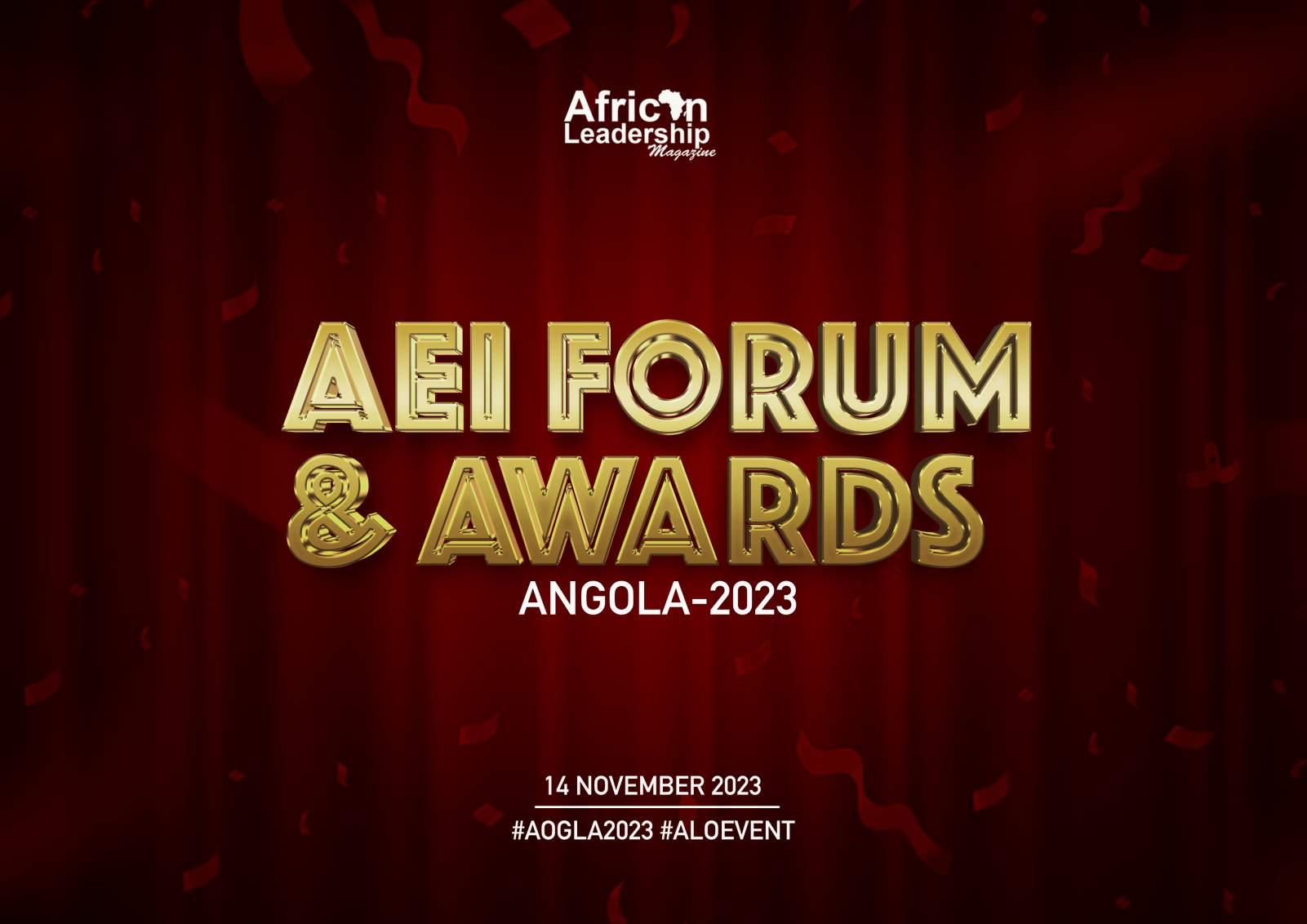
Ghana's Journey To Economic Recovery
The global environment is fragile, and the outlook remains uncertain. Global economic activity has slowed down more broadly and sharply than anticipated due to the decline in global economic growth; the rise of public debt above sustainable levels across major economies, especially in emerging markets; the degree of decay when it comes to public health due to the COVID-19 pandemic; and now the Russia-Ukraine war and its attendant consequences. Overall, this has affected global inflation.
A CHART OF GHANA'S RISING INFLATION RATE IN 2022
In all these uncertainties and global crises, no single country was exempted and Ghana had its fair share of the cake. Ghana's public debt has risen past the sustainable
level for an emerging economy. The country's current debt is over 80% of its GDP The overall fiscal deficit doubled to 15.2% in 2020 and public debt increased to 81.1% in 2020, placing Ghana at a significant risk of debt distress. Economic situations continually grew worse such that as at November, 2022, the Ghana cedi depreciated cumulatively by 54.2 percent against the US Dollar. Similarly, the Ghana cedi depreciated cumulatively by a 48.5 percent against the British Pound.
GHANA'S FINANCE MINISTER OUTLINING STRATEGIES TO REVIVE THE COUNTRY'S ECONOMY
In view of these fiscal management challenges, government has developed and
introduced policy measures and programmes aimed at restoring fiscal discipline, reversing the fiscal deterioration, and putting the public debt on a downward and sustainable path. Ghana's 2023 Budget Statement presents solutions and the way forward in restoring the country's economic stability which are mostly home grown economic recovery plan. These included; increasing its domestic revenue base, reducing government expenditure, and reviewing the tax laws to block leakages of tax revenue, significantly expanding local production. These proposed solutions are to be achieved utilizing a seven-point schedule. These comprise of aggressively mobilizing domestic revenue; streamlining and rationalizing

ECONOMY AFRICAN MAGAZINE LEADERSHIP www africanleadershipmagazine co uk 32 P A G E
expenditures; boosting local productive capacity; promoting and diversifying exports; protecting the poor an vulnerable; expanding digital and climate-responsive physical infrastructure; and implementing structural and public sector reforms.
Finance and how is it managed is integral to making plans that will generate substantial revenue to revitalise and transform the economy. The country plans to make this feasible through three (3) critical means; that is; negotiating a strong IMF programme; coordinating an equitable debt operation programme; and attracting significant green investments.
Firstly, domestic revenue would be mobilized through the increment of VAT by 2.5 percent; fast tracking the implementation of the Unified Property Rate Platform programme and a review on the E-Levy Act by reducing the headline rate from 1.5% to one percent (1%) of the transaction value as well as the removal of the daily threshold for a better reception from the citizens.

Also, a 50% cut of imports of public sector institutions that rely on imports either for inputs or consumption to boost local
productive capacity; the production of strategic substitutes, large-scale agriculture and agribusinesses interventions which would be supported via the Development Bank Ghana and ADB Bank; policies for the protection and incubation of newly formed domestic industries would be introduced to allow goods produced here become competitive for local consumption and also for exports.
GHANA'S ECONOMIC RECOVERY PATH
Furthermore, exports will be promoted through the expansion of the productive capacity in the real sector of the economy and actively encouraging the consumption of locally produced rice, poultry, vegetable oil and fruit juices, ceramic tiles among others.
In addition, to pursue efficiency in Government expenditures, there would be the implementation of Government directives on expenditure measures; Integration of public procurement approval processes with GIFMIS to ensure that projects approved are aligned with budget allocation; a review of key government programmes to reflect relevance, promote efficiency, and ensure value for
money; and a review of the efficiency of Statutory Funds.
Again, for structural and public sector reform implementation, there would be an imposition on a debt limit on non-concessional financing; major structural reforms in the Public Sector by reviewing the operations of agencies; enforcing compliance with legal and regulatory framework on foreign exchange; initiating measures to overhaul the tax structures in the extractive industry; expanding the gold purchase programme by Bank of Ghana to support FX Reserve accumulation, promoting an LBMA certified gold refinery in Ghana and promoting the local currency stability
The Ghanaian economy has suffered a great deal of economic difficulties at the macro and micro levels which has affected both the citizens and foreign investors in both personal and business life. The governments policies in pushing this agenda are quite difficult and challenging and will demand a lot of cooperative effort, commitment and sacrifices from all its citizens and various sectors of the economy
ECONOMY AFRICAN MAGAZINE LEADERSHIP www africanleadershipmagazine co uk 33 P A G E
Improving the Development of Small-scale Farming In Sub-Saharan Africa
Human beings can live without having foot wears and clothes, they can navigate life without computers, and move without cars but human beings cannot live without food. This is how important farming is to the human race.
Farming is known to be one of the most dignified forms of employment, with it's role as a food supplier.
Agriculture and farming hold great promise for the African continent as more than half of the Earth's arable land which is roughly 600 million hectares is located in Africa.
While other parts of the world are reaching the limits to the amount they grow per hectare of land, Africa can still substantially increase yields with currently available technology
Yet, with all this natural endowment, Africa is a net importer of food. Despite an abundance of uncultivated farmland, African countries in the region spend about US $35 billion importing food instead of creating the conditions to grow more food locally
A lack of political will, supportive agricultural policies, and investment, coupled with a focus on short-term development solutions, have left large tracts of agricultural land underutilized, small scale farmers poor and food insecurity on the rise in some places.

Small-Scale Farming
In Africa, there are an estimated 33 million smallscale farms, and the farmers that live on them contribute up to 70 per cent of the food supply
With greater investment in small-scale agriculture, many African countries have the potential to increase food production and reduce poverty.
In Sub-Saharan Africa, we could see it has a quarter of the world's arable land but only produces 10 per cent of its agricultural output.
Economic growth from Agriculture is eleven times more effective at reducing extreme poverty than any other sector in Sub-Saharan Africa.
34 P A G E AGRICULTURE AFRICAN MAGAZINE LEADERSHIP www africanleadershipmagazine co uk
In the Sub-Saharan region, bringing small-scale farming into the 21st century and dealing with rural poverty remains massive hurdles.
In this region, small-scale farmers are known to produce the greater proportion of food consumed in the developing countries..
The various national and international agricultural research centres located in these parts of the world have developed agricultural packages which have been proven, at experimental levels, to be highly productive.
However, small-scale farmers in these areas continue to produce at levels far below the capacities of these packages as predicted from experimental results. Consequently, these farmers, despite their relatively large numbers, could not produce enough to feed themselves let alone the general population.
In order to improve the development of small scale farming in the Sub-Saharan African region, here are some of the measures to put into consideration.
Study Responsible Factors
There is a need to study the various factors responsible for low agriculture production of smallscale farmers at the household level.
Studying these factors could lead to relevant national and international policies with respect to small-scale farmers in sub-Saharan region.
Such factors could include factors as to why the produces spoil so fast and reasons for low patronage among others.
Provide Better Farming Inputs
For this region to enjoy agriculture to its fullest, small scale farmers need better farming tools like improved seeds, fertilizers, animal feeds, Medication irrigation and mechanization services.
Again, modern technology such as the use of soil microbiome, which does not require nitrogen fertilizer application in crops like maize, wheat, and rice as well as grass pasture, should be adopted.
Adopt the Farmers Field School Concepts
This concept was advocated by the United Nations Food and Agriculture Organization, FAO in 2018.
This system allows a group of farmers to be trained, and in turn, these farmers return to their different communities to train other farmers on what they have been taught. With this, small-scale farming could reach massive development faster
Training and retraining in any field are faster ways of getting quick and positive results, even if governments or other bodies cannot train every small scale farmers, the FAO concept could go a long way if
In Africa, there are an estimated 33 million smallscale farms, and the farmers that live on them contribute up to 70 per cent of the food supply
adopted in this region.
Assisting Small Scale Farmers
Assisting small scale farmers in the Sub-Saharan region so that they would be able to produce food all year round is a great push for improving small scale farming in the region and in the African continent general.
For instance, in communities where there are water bodies, they could assist the small-scale farmers in facilitating the provision of irrigation services. These services might not necessarily be free, the button line is that the small scale farmers have access to these and with it, they can do more in food production.
In the same vein, mechanization services should also be made available to small scale farmers as this would enable them produce more food for the continent.
Availability of Loans and Grants
Most small-scale farmers do not have the necessary tools and facilities to work with. These sets of farmers should be given access to loans with a flexible and convenient re-payment method.
Provision of affordable loans and credit facilities would also help small scale farmers to purchase the needed farming inputs. With this, small scale farmers would be able to expand the hectares of land cultivated.
Most of the farmers in cooperative societies and associations can be provided with money to purchase agricultural machinery for a group of farmers in a community, so that these services can be offered to them as and when needed at a reduced fee.
These loans or grants would also help them in purchasing modern farm techniques
AGRICULTURE AFRICAN MAGAZINE LEADERSHIP www africanleadershipmagazine co uk
35 P A G E
Resource Research and Extension Systems
These research systems need adequate resources so that they continue to make high-yielding, drought or flood- resistant and disease resistant varieties.
Joint research and planning meetings between research and extension workers on one side and farmers on the other is necessary. With this, farmers problems can be made known and addressed through research.
Many communities in Africa have practiced the research and extension system and it yielded great result for the communities. For instance, in Ethiopia, their agricultural extension system is worthy of emulating, where to every farming village, three extension workers for crops, soils and livestock are posted. Since Ethiopia introduced this approach, the agricultural sector has consistently produced superior results
With the research systems working adequately, many setbacks concerning small scale farming in the sub-Saharan region could be handled and solutions given.

Availability of Treatment and Storage Facilities
In the Sub-Saharan region of Africa, farmers face a lot of post- harvest losses and majority of these losses are from small scale farmers who have limited or no proper treatment and storage facilities for their farm produce.
They can be taught simple and economical ways on how to store their farm produce like the use of the local made cribs. If these loses are curtailed, small-
scale farmers would not only save more money but they would also be able to push more farm produce to the markets.
Establish Agri-business
Making it possible for small-scale farmers to venture into agribusiness is another way of building entrepreneurs in the agriculture sector
Focusing on this area would be a plus and an added advantage in growing the African economy
In conclusion, the agriculture sector in the subSaharan region of Africa especially the small-scale farmers need to be given attention so that food production can be intensified.
There is no doubt that small-scale farmers have an important role to play in the development of the African Economy
They are also seen as food providers, livelihoods creator and a source of foreign currency earnings for Africa.
Therefore, if the suggestions in this article are followed, then small-scale farmers should be able to take advantage of the vast opportunities that exist to change the fortune of Sub-Saharan Africa region and the continent at large .
AGRICULTURE AFRICAN MAGAZINE LEADERSHIP www africanleadershipmagazine co uk
36 P A G E









The Rise of E-commerce In Africa

By 2025, it is anticipated that Africa will have more than half a billion online shoppers, representing a market with a consistent compound annual growth rate (CAGR) of 17%.
According to data provided by the International Trade Administration, Africa leads the world in the generation of web traffic from mobile devices, with 69% of its overall web traffic coming from mobile internet users.
By 2040, the market is expected to be dominated by mobile devices, according to them.
By 2021, the African continent will have a mobile internet consumption that is 13% higher than the global average and about 5% higher than Asian markets.
This should suggest a "mobile-first" strategy to any business looking to sell online to the various African markets as the continent has made significant advancements in internet penetration—estimated at 70%—and is home to MPESA, which invented mobile payments. However, it still lags in access to energy and road networks.
Consider the Republic of Kenya, for example.
The government will digitize its operations to improve service delivery, according to President William Ruto's statement from last year
During a roundtable discussion on micro, small, and medium enterprises held by the Kenya National Chamber of Commerce and Industry in Nairobi, he delivered these remarks.
The President also stated, outside of the same agenda, that the government was developing a policy framework for the creative economy to safeguard children and increase their capacity to support themselves via their skills.
Speaking at the Jamhuri Day celebrations in Kenya last year, Ruto underlined the government's commitment to digitizing all of its services.
He claimed that to make this a reality, his administration intends to construct a 100,000 km long expressway of internet through cities, municipalities, and the entire nation.
In addition, the head of state noted that just 15% of services were already provided digitally in the nation, with the remaining services expected to be implemented soon.
“It will soon be possible for Kenyans to access government services from the comfort of their homes using the internet,” he said.
He also said that for easy access by small firms, export documentation and business information would also be digitalized and combined in a single platform.
COMMERCE AFRICAN MAGAZINE LEADERSHIP www africanleadershipmagazine co uk
38 P A G E
This merely demonstrates that the country is already getting moving, as it always has.
Additionally, it has served as a model for other nations in the region.
Investors seeking to establish their enterprises on the continent must therefore be prepared to follow the trend and launch their operations, just like in many other African nations.
Online sales in Africa were predicted to produce about 37 billion US dollars in revenue in 2022, up from about 13 billion US dollars in 2017.
Statista Digital Market Outlook predicted that between 2022 and 2027, e-commerce sales in Africa would continue to grow
Thus, it is believed that technology is still revolutionizing various industries throughout Africa, none more so than the burgeoning e-commerce market, which is changing how the retail sector operates and connecting the continent's hundreds of thousands of small and medium-sized businesses with a sizable potential customer base.
The second iteration of TechCabal Media's Future of Commerce event was held in Lagos in September of last year. Business leaders, industry experts, and retail operators from all over Africa attended to discuss how social media, payments, agent networks, informal trade, and social commerce will drive the expansion of Africa's e-commerce market.
The event focused on the inventive and unique methods that startups and established businesses may include the unorganized sector in the e-commerce ecosystem.
What is the impact of Covid-19 on the prospects for e-commerce in Africa?
I think the most typical question I get is this one.
The pandemic changed ecommerce in Africa, as it did everywhere else in the world, from a convenience to a need for both customers and businesses.
However, the need there may have been more urgent.
E-commerce offered a secure substitute for both buyers and sellers during lockdowns when
open marketplaces were blocked for a while.
Online shopping has become a routine and will probably continue to do so for some time.

And how can businesses make greater use of the chance that digitalization offers?
The response of policymakers to the opportunity will play a role in the solution.
For instance, e-commerce is playing several roles in Africa, but two of them are particularly significant: 1) lowering barriers to entry for retail and enabling millions of Africans to participate in the economy; and 2) facilitating the consolidation of a highly fragmented industry
Combinations must work together
A still-fragmented economy struggles to draw in targeted institutional investment resources.
For Africa and its enterprises, social commerce, which blossomed during the pandemic, poses this problem.
Despite being digital, it is still
39 P A G E COMMERCE AFRICAN MAGAZINE LEADERSHIP www africanleadershipmagazine co uk
mainly dispersed.
According to reports, the amount of investment money entering the African digital market has increased significantly, reaching $5 billion in 2021, and is tellingly focused on industries like fintech and e-commerce, where platforms are utilizing aggregation to promote value creation.
Given that there is still a sizable headroom for investment across all segments (including other ones like health, agriculture, energy, and more), understanding the difference between fragmented digitalization and aggregated digitalization seems to be essential to understanding how African countries can draw in more investment to fully leverage the potential of digital business models.
And what can African firms learn from this?
It's crucial to keep in mind that for businesses to succeed, they must incorporate the sometimes unsettling contrasts of Africa into their business models and create innovative solutions that are specifically tailored to the market. Investment capital will also follow where cutting-edge solutions and digital aggregation are creating real value as digital penetration rises across the continent.
What are some strategies for ecommerce to expand in Africa?
Imitating business practices and government regulations now in place in Kenya is one way that eCommerce can develop.
Kenyan banking is a global pioneer in the use of mobile money, and the country's e-commerce sector has experienced rapid expansion.
There are numerous examples of "best practices" there.
Hundreds of young entrepreneurs are contributing to the expansion of e-commerce thanks to the over a dozen digital hubs that are fostering app and business development close to Nairobi.
Through their digital hubs, many other African nations have promoted app creation as well.
Another leader in South Africa.
The number and locations of Africa's tech clusters are estimated in this article.
Two significant barriers to the expansion of e-commerce in several African nations are customer trust in using the internet and internet access.

It can be challenging to access the internet outside of urban regions, making e-commerce problematic as well, however, the mobile phone system offers an alternative.
The internet must be made more accessible to those with purchasing power to improve ecommerce.
To be accessible, the internet must function consistently and at a "reasonable" speed.
Second, there is a lot of work needed to change people's skepticism of conducting business online.
Enough security measures are required, and businesses that promote e-business must establish exemplary reputations, be entirely reliable, and provide money-back guarantees for goods supplied.
As a final note, social media marketing for the specific organization needs to be strengthened along with traditional lines of marketing that direct consumers to the internet as a source of supplies.
Middle-class and higher-income residents are using the internet to purchase their home-delivered meals or groceries in the urban centers of Africa where traffic is a serious bottleneck due to the congestion.
Having things delivered to customers saves them a lot of time compared to having to constantly navigate traffic and polluted air outside.
In some of these cities, there may be genuine chances for growth.
Trust, quality, and reputation are still important factors.
COMMERCE AFRICAN MAGAZINE LEADERSHIP www africanleadershipmagazine co uk
40 P A G E
BUILDING GENERATIONAL BUSINESSES IS CRITICAL TO AFRICA's GROWTH

As an individual grows up and reflects on the past, one wonders where and how various businesses which had existed in a particular era faded away with no trace and new ones which emerge end up going through the same cycle. In Africa, building of generational businesses is a major challenge due to numerous reasons. It is very difficult to trace and identify African businesses which were very successful in a particular era and are still chalking success. Some which have died off include that of Late Nigerian philanthropist and politician, Moshood Kashimawo
Abiola, he was believed to be one of the wealthiest African with business interests in the airline, media, real estate, fishery, and retail. The story is not different for Joram Kamau, who used to be one of the wealthiest Kenyans several decades ago.
It is a notable fact that Africa's fast-growing population and markets present important opportunities for business in an environment of slowing global growth and investment in business is a major contributor to the GDP of a nation which will in turn affect the nation's economic development as
COMMERCE AFRICAN MAGAZINE LEADERSHIP www africanleadershipmagazine co uk
41 P A G E
businesses are avenues to aid or solve major challenges in any nation. The African continent is a continent known to be rich in resources and when such resources are tapped and utilized properly, would enhance economic development in a way that will make its businesses competitive with other continents.
As the years unfold, Africans are becoming more innovative in business. A few of them have and are establishing their own businesses hence a gradual growth of entrepreneurs in Africa. In the coming decades, many Africans would be acknowledged for starting businesses, generating jobs and wealth, and capturing growth opportunities.
However, one challenge that plagues African businesses is business sustainability. Businesses hardly survive beyond their founders, as most businesses begin to collapse after the founder retires or dies. As a continent, we need to change our approach to business, envision the future in present decisions and invest in sustainable and generational businesses. Africa needs generational businesses that can continue to exist, thrive and expand as very successful businesses even after the minds that conceived them are dead or there is a transition of leadership. This is one major way to keep the continent at par with the growing economies of other continents.
A few of the generational businesses which Africa can boost are family businesses, some of which are even owned by non-African families these include; the Dantata Organisation which has transitioned leadership to three generations and has grown into a Multi-Million dollar conglomerate with interests in construction, oil exploration, manufacturing, farming, import and export, merchandise and commodity trading; the Ibru Organisation which has made an aggressive investment in agriculture and livestock over the years; Madhvani Group, the largest sugar manufacturer in East Africa which has expanded into other East African markets like Rwanda, Kenya, and Tanzania even after succession; Pick N Play, one of the largest retail chains in Africa, operating in over 1600 locations in over six countries and with more than 90,000 workers.
As a continent, we need to change our approach to business, envision the future in present decisions and invest in sustainable and generational businesses.

COMMERCE AFRICAN MAGAZINE LEADERSHIP www africanleadershipmagazine co uk
AMINU DANTATA, ONE OF THE SECOND GENERATIONAL LEADERSHIP OF DANTATA ORGANISATION
42 P A G E
MAYUR MADHVANI, MANAGING DIRECTOR OF MADHVANI GROUPS IN EAST AFRICA

To build generational businesses, loopholes have to be sealed to bridge the gap of transitioning. One major challenge for businesses in Africa is its poor structure of transitioning. Many businesses die out after the death of their founder because of poor succession plans. Death is inevitable hence; succession must be considered when establishing any business. The best time to find a successor with the right level of commitment, vision and zeal to lead a business beyond the lifetime of the founder isn't when the founder retires or is on his/her deathbed but should even be considered right from its establishment. Therefore, African businesses must put strong and appropriate structures and principles in place to aid and guide any generational group for continual progress and growth of any business. Businesses with strong structures and systems will not only give knowledge to the young generations, but they can also grow to take over the company by succession. Hence, the young generation will not struggle with finding their foot because they are already part of the business.
Building generational businesses demand investment in the skills of potential youth. Many
African businesses cannot function independently of the founder. Vital business information and records concerning most businesses are housed in the heads of their founders hence the business risk a tragic end if anything happens to the founder. Apart from record-keeping, skills and or knowledge should readily be made available to employees. Requisite learning and training should be given regularly Formal education, short courses, mentorship, coaching, and exposure are critical to the nurturing and grooming of a successor
Another major challenge is the lack of structure and business systems. Business systems are very important because it gives a blueprint of policies and procedures that govern everything from recruitment, employee conduct, finance, and accounting, among other running of the business. One key trait of successful businesses, especially those that have existed through several generations, is the existence of a clear structure and business systems that help the business to operate effectively
Businesses must begin to keep accurate and up-to-date records of their activities, including complete information about operations, finances, transactions, customers, suppliers, employees, and everything else.
The need to correspond with the changing business trends as society continues to evolve is key if the continent must build generational businesses. Another strong feature of businesses that last beyond a generation is their ability to adapt. In a world of constantly changing markets, consumer trends, sociopolitical influences, and outright disruption, adaptation is a key strength of businesses that will survive today and in the future. Changes and trends in both the local and international marketplace will be one of the biggest risks that African entrepreneurs and businesses are likely to face especially with a growing number of foreign businesses and brands increasing their footprint in Africa.
The vision of growing generational businesses such as IBMs, Coca-Colas, Fords, and Nestlés is a possible dream but it will not happen by chance. There is a need to take quick, deliberate and calculated steps to navigate the roadblocks and risks to pave way for the manifestation of this dream.
COMMERCE AFRICAN MAGAZINE LEADERSHIP www africanleadershipmagazine co uk
43 P A G E
Catch Them Young –How To Position The Young People For Effective Climate Action In Africa

Most young people still believe that their input and contributions towards climate change don't matter, but the fact remains that they stand as the future of tomorrow and so must be educated with sufficient knowledge and technical know-how on climate actions in Africa in order to participate fully

Anthony Oyakhilome Justice, a United Nations Academic Impact and Millennium Campus Network Fellow and Campus Director for the class of 2020 and a student at the University of Port Harcourt, Nigeria once told a story on how he took part in a drainage clean-up project with the Young African Leaders Initiative (YALI) Network Hub. He said; “While we were working, a young man walked up to me and asked, “Why are you people doing this?” I told him that we were trying to keep the environment cleaner and safer. “Are they paying you guys to do this?”, he asked. “Plus, isn't this supposed to be the job of the government?” I replied that we were working not for pay but to play our part in ensuring that we have a better world to live in and that the government
cannot do it alone. He looked at me incredulously and walked away
Several young people are totally ignorant of what is happening to the African environment and the majority of the ones that are aware think the responsibility lies with the government. Therefore, the young generations need to understand that they are the 'captains of tomorrow' – this knowledge will prepare them to be actively involved in this race with the consciousness that they are energetic, smart, vibrant, creative, and entrepreneurial.

Marie-Claire Graf, the youth non-governmental organization (YOUNGO) Focal Point from the Global North opined that “Young people must sit at the table when decisions are taken and be included in climaterelated policy formulation as well as its implementation."

According to the United Nations estimation, the population of young people in Africa stands at roughly 1.21 billion.

44 P A G E
ENVIRONMENT AFRICAN MAGAZINE LEADERSHIP www africanleadershipmagazine co uk
Though the definition of “youth” varies from country to country, the United Nations defined it as people between the ages of 15 and 24.
The Earth's global temperature is warming, meaning that weather patterns and ecosystems are changing more quickly than animal species and human communities can adapt. Many of the world's greatest challenges, from poverty to displacement, wildlife extinction to extreme weather events, are being intensified by climate change.
Climate change impacts range from affecting agriculture, and further endangering food security, to sea-level rise and the accelerated erosion of coastal zones increasing the intensity of natural disasters, species extinction, and spread of vector-borne diseases. A typical example can be related to the flood occurrence in Nigeria in 2022, many lost their lives, homes, families, farmlands, livestock, and other sources of livelihood and it has also affected the economy of the country
According to the Intergovernmental Panel on Climate Change (IPCC), Africa as a region is the most vulnerable to climate change compared to other regions of the world due to its complex climate system. Africa accounts for only 7.1 percent of global greenhouse emissions.
After experiencing these drastic effects caused by climate change, almost half of the young people in Africa said they have reconsidered having children, according to results from a UNICEF U-Report poll of 243,512 worldwide respondents.
Globally, 2 in 5 young people said the impacts of climate change have made them reconsider their desire to start a family. This concern was highest in African regions, with the greatest percentage of young people reporting that they are reconsidering having children found in the Middle East & North Africa (44 percent) and Sub-Saharan Africa (43 percent).
However, these perceptions can be tamed if the African youths understand that proper awareness and deliberate actions are the critical agent in addressing the issue of climate change.
In the classroom, young people can be taught the impact of global warming and learn how to adapt to climate change. These will empower and motivate them to take action and also helps them to make informed decisions towards their environment and beyond.
According to Diana Taylor, Managing Director of Marketing Humber, “This is an incredible opportunity for school and college students to come forward with their own inspiring solutions to the issues that are causing and worsening climate change.
“We know that young people represent the future, and they are the ones who will be most impacted by the devastating consequences of climate change, so we want to tap into their creativity, imagination, innovation, and passion.
Some African students are already climate action activists, fighting and creating awareness on how to curb the menace of climate change. Let's take a glance at a few of these students;
Yero Sarr
He first got involved in the youth climate activist space at the age of 16.
Fears around the future of young people across the planet prompted him to become very active in the fight against climate change – and to make sure that others join him in this race.
Yero is Senegalese student and co-founder of the Fridays For Future movement. He believes that collective action is far better than individual action.
Yero's strength is mobilising people; he works with several environmental organisations on many issues important to him.
Raeesah Noor-Mahomed
She is an 18-year-old South African final year student in high school who led a boycott to demand that the country's environmental department declare a climate emergency.
Fast-forward to a year later, and they have been invited as an observer to COP26.
The Johannesburg-based intersectional activist strives to decolonise Africa, connecting to activists around the continent to make activism more inclusive and accessible with the organisations Stage for Change and 65 Years.
Remy Zahiga
Remy is a 24-year-old African climate youth activist and geology graduate that is very passionate about climate change.
He's from the Democratic Republic of Congo and he believes that climate change directly affects each and every one living in the Congo Basin, the world's second largest rainforest.
He is no stranger to the impacts of environmental degradation, especially with the constant threat that industrial logging poses on the forest and the communities that live there.
He feels that world leaders are far from taking decisive action on the climate crisis.
Dixon Bahandagira
Dixon Bahandagira (23) is an environmental science student with a massive ambition. He desires to plant one million trees in his home country, Uganda, to counter the impact of the climate crisis there. According to him, more than 200 lives have been lost in his home country since 2017 due to severe floods and landslides exacerbated by climate change.
He fears that the situation will get worse due to lack of political will, and has decided to tackle the issue head-on. Dixon has already
45 P A G E ENVIRONMENT AFRICAN MAGAZINE LEADERSHIP www africanleadershipmagazine co uk
planted more than 100,000 in the space of one year –using more than 10 different species and teaching local people to take care of the plants until they are fully grown.
Evelyn Acham
In order to make a difference in Uganda's capital, Kampala, she learned more about the climate crisis, the African youth climate activist began to understand the intersectionality between climate change and race – and why it was so important to include it in her home country's school syllabus.
As the national coordinator of the Rise up Movement, Evelyn remains at the forefront of the Ugandan climate movement, organising climate strikes and calling for divestment from fossil fuels.
The few young African climate activist did not just dive into the actions, some were taught what to do, some looked into their environment and made a decision to fight it, some choose to fight the menace looking back at the ugly experience it posed on them and their loved ones while some naturally aligned because they love nature.
Young people are key stakeholders in the environmental sustainability of our planet in terms of the actions they take now and the influence they have on peers and family, but also because they will become the decision-makers, parents, teachers, business-people, consumers and citizens of the future world we are aiming to protect.
However, the number of young people who are consistently fighting this course is low in Africa. The Ichikowitz Family Foundation conducted 4500 face-toface interviews with young people from 18 to 24 years from 15 countries in Africa, including South Africa. Data showed that 70% of young Africans are concerned about climate change, less than 50% of African youth are satisfied with the effectiveness of their government's climate change policies and 64% are striving to decrease their carbon footprint.
Certain steps need to be taken to ensure that 99% of young people in Africa join this crusade so that Africa can live in a better world
At the United Nations framework convention on climate change COP27 which took place on November 2022 in Egypt, UNICEF made a call on the younger generations to:
PREVENT. African youths should cut emissions drastically and urgently in order to prevent a climate catastrophe.
PROTECT. Secure clear action on adaptation that protects every child from the accelerating impacts of climate change through the Global Stocktake and Global Goal on Adaptation.
PREPARE. Advance climate change education and meaningful participation to prepare children and youth through the Action for Climate Empowerment (ACE) Action Plan.
PRIORITIZE. Accelerating climate finance investment in climate-resilient social services that reach the most at-risk children, youths and unlock progress on loss and damage
In addressing these challenges, the government of African countries must look inward to prepare and utilise its greatest asset – the youth – to address climate change.
This opportunity, if properly harnessed, provides an avenue for climate action. But then you ask, why are the youth important in the fight against climate change? How can the youth be prepared for sustainable climate action? And how can they develop solutions that will help the continent to mitigate and adapt to a changing climate?
The foundation for a climate-smart and environmentally-conscious generation begins with education.
Experts and major stakeholders have suggested that climate education is a key factor in mitigating the impacts of climate change and environmental degradation.
Mainstreaming climate-related courses into school curricula from the elementary will position the younger generation to be aware, understand, and join the global conversation on the subject of climate change.
It will also raise a generation of young Af `ricans who understand the climatic uniqueness of the continent and embrace climate action at a young age.
The long-term result of investing in climate/environmental education will be evident when young people address and find solutions to climate change and environmental issues peculiar to their regions.
Similarly, problem-solving and innovation are common traits associated with the youth demography, as young men and women can think outside the box. African youths have the capability to develop both nature-based and technology-driven solutions to address climate-related issues in their regions. Young Africans are championing proforestation, reforestation, and clean cooking solutions to promote forest conservation; clean energy solutions to transition communities from dirty fuels to sustainable energy; climate-smart agricultural practices that reduce land degradation and promote food security; circular-economy businesses in cities to address waste; advanced tracking and warning systems to monitor and reduce disasters and risks associated to global warming.
46 P A G E ENVIRONMENT AFRICAN MAGAZINE LEADERSHIP www africanleadershipmagazine co uk
Therefore, there is a need for a supportive environment that offers young innovators the opportunity to envisage, develop, and scale their ideas into implementable solutions. The national and sub-national governments must create policies while VCs and impact investors fund such businesses to foster innovation among youth-led solutions
Across the globe, there is a growing trend of young people actively participating not only in the conversation on climate but in planning and implementation. This is what Africa needs. The huge chasm between current decisionmakers and the youth must be bridged and allow for inclusive participation by the youth.
Addressing climate change, no doubt requires collective intergenerational effort. However, the younger generation is at greater risk of climate change impacts – in half a century, they and their
children will bear the brunt of previous generations – should tipping points be reached.
A climate-smart, innovative generation included in the implementation process will usher in a new era of climate action in Africa.
To create a disruptive positive change, the youths must take Action Now!
For us and for the planet!
ENVIRONMENT AFRICAN MAGAZINE LEADERSHIP www africanleadershipmagazine co uk 47
Addressing climate change, no doubt requires collective intergenerational effort. However, the younger generation is at greater risk of climate change impacts
Building Excellence In Africa's Education
“Education is the passport to the future, for tomorrow belongs to those who prepare for it today” Building excellence is not a journey that can be achieved in a day but a gradual journey which is never an accident but is born out of being intentional, committing sincere effort, intelligent direction, skilful execution and the vision to see obstacles as opportunities hence the need to invest more in quality education which leads to excellence.
The growth in the world's labour market is in Africa. Education is a critical means by which Africa's human capital can be developed. Africa's population increases each day and this continent will be home to a billion children and adolescents under 18 years of age, almost 40 per cent of all children and adolescents in the 0-18 age group worldwide. Investing in the future of young ones today would definitely yield mind-boggling results in the years to come and one major channel to achieve this vision is through education. Children and adolescents who receive the right opportunities have an advantage to better thrive and develop their full potential which would be beneficial for the individual, community, nation and
the world as a whole. Africa's young population can be a powerful source of growth and progress in Africa and the world if given the right access and opportunities. Only then can African countries position themselves to reap the benefits of increased economic productivity
Over years, Africa's educational system has had challenges with quality, equity and relevance which must be addressed for excellence to be reached. From the primary to higher level of education in Africa, the drivers of inequality in education are many and complex, yet the response to these challenges revolves around simple and sound policies which will aid in solving other developmental issues such as inclusive growth, the eradication of poverty and exclusion, increased investment in education and human development, good governance and many more.
Since the early 2000s, African countries have made efforts to improve access to education with stunning results however, more needs to be done to reach excellence. For example, in the Times Higher

49 P A G E EDUCATION AFRICAN MAGAZINE LEADERSHIP www africanleadershipmagazine co uk
Education Ranking which is an international education ranking, out of 1500 listed universities only 60 African universities were included of which 31 were located in Egypt and South Africa. The importance of education to the African continent intensifies the need to build excellence in education because providing high-quality education today will help build the skills for the world's future workforce, increase incomes, and grow economies.
Building excellence entails collaborative work from all its stakeholders; the government, teachers and students to review and diversify their systems of education and expand the level of skills to
make products of institutions relevant to the demands of the labour market. To build excellence, all aspects of education must be reviewed and focused on. These include; institutional supply, human capital, research output, infrastructure, and quality of graduates for the labour market among many others.

One critical area for excellence is human capital in the educational field. From management of educational institutions to tutors and lectures brought on board, the right and qualified people for the job should be engaged. These people should have integrity as a hall mark and both a personal and collaborative desire towards
achieving excellent in their field. Every step of the ladder and decisions made must be targeted towards top notch deliveries which will improve the educational sector by day
Also, the curricula of Africa's educational system must be critically revised if excellence is the goal. The quality of graduates remains problematic because of persistent mismatches between graduates and skills requirements of the job market which has translated into high levels of unemployment in societies. The gap between the knowledge taught in school and the practicality of the job market must be addressed from the lower levels to the higher levels.
50 P A G E EDUCATION AFRICAN MAGAZINE LEADERSHIP www africanleadershipmagazine co uk
The promotion of holistic and innovative curricula that impart skills for the jobs of the 21st century; adopting and using educational technologies that support the whole student for student success going beyond the certificate given and the creation of effective policies and interventions to address this will an build up and give a sense of direction in preparing graduates fit for the job market.
BRIDGING THE GAP BETWEEN EDUCATION AND THE JOB MARKET

Installing the culture of research from lower educational levels is an important aspect of building excellence as the research culture in most European states have yielded results in their economies.
According to the latest UNESCO Science Report 2021, Africa spends only 0.59% of GDP on research and development, compared to a world average of 1.79%. Being involved in research at an early age builds on one's mindset from an early stage and will help discover numerous gaps that need to be worked on for Africa's development. Research and development will guide Africans into field that can be explored for excellence, growth and development.
Another aspects is the investment in infrastructure taking into consideration the technological advancement and transformation. Educational excellence partly depends on the state of teaching and learning facilities: classrooms, libraries, laboratories, recreational amenities, and campus housing. Africa needs to continually upgrade infrastructure to meet the changing demographics of students, curricula and demands of 21st-century higher education taking into consideration the digital era we live in. There is a need to embed digital transformation in institutional culture, from strategic planning and organisational structures, to operational processes, to rethink capital expenditures that historically favoured physical contact; develop online design competencies; entrench technologymediated modalities of teaching and learning encompassing faceto-face, blended and online; and embrace changes in terms of curricula design and delivery that involves students as active participants in the learning process rather than passive consumer achieving this goal.
REPOSITIONING TOWARDS DIGITAL
EDUCATION IN AFRICA
In addition, exercising prudential financial management and promoting financial sustainability Finance is a key issue in building educational excellence. For excellence to be attained in this sector, finance is immensely need. The African continent is not one that can boast of wealth as it has been ranked as a low income continent. Striving for excellence means investing in every step of the journey and the need of funds cannot be overlooked. Funds raised by governments and institutions must be invested in innovative, entrepreneurial activities and sustainable development. Also, revenues used should be a accounted for
Furthermore, creating partnerships as well as strengthening existing partnerships with international institutions and intergovernmental organizations will aid build excellence. Learning from International educational systems which have made progress in quality education is possible through partnerships as it offers an avenue to explore areas and gain adequate aid needed to grow excellence in Africa.
Building excellence in Africa's education might seem like an impossible dream but when all it's stakeholders are committed to seeing a change and transformation this dream would surely become a reality. Some governments in Africa have taken a step in the right direction and this is reflected in innovative ideas, innovations and inventions of African specifically in the vocational and technical field striving for excellence today would serve the continent better tomorrow particularly in the development of many of it's nations. Hence, all African nations must be willing to sacrifice and commit all necessary resources toward this goal for a hope in the global world for it's generation.
EDUCATION AFRICAN MAGAZINE LEADERSHIP www africanleadershipmagazine co uk
51 P A G E
Strive To Thrive: Nigeria's Agro Revolution Story
From the beginning of time, man has relied on agriculture for sustenance and survival. As man evolved, so did agriculture in the way and manner man cultivated the land. In other words, agriculture has endured its own unique revolution. Simply put, the agricultural revolution is the name given to a number of transformations that allowed humans to change from hunting and gathering subsistence to agriculture and animal domestication.
Every region has its own unique agro-revolution story. For Nigeria, agro-revolutions have always been at the center of most agroeconomic policies of the government with the objective of diversifying the base of the economy using crude oil as a
springboard.
Some of these factors have contributed to Nigeria's agrorevolution are :
Ÿ The increased availability of farmland.
Ÿ A favorable climate.
Ÿ More livestock
Ÿ Improved crop yield.
Agriculture is the mainstay of Nigeria's economy upon which the country's nationalists founded their agitation for independence. Nigeria was a leading agricultural economy in the 50s, being the largest producer of palm oil, groundnut, cotton, and cocoa globally. The sector employed over 70 percent of the labour force, and accounted for

as much as 62.3 percent of the nation's foreign exchange earnings.
However, the discovery of crude oil in the 1950s progressively led to the neglect of the sector, which made Nigeria fall in the global market rankings for which it was taking the lead. To remedy this, agricultural policies have been dished out by different leaderships of the country in order to revolutionize the sector to support food security
Strive: Post-independence Policies
In the bid to cushion the effect of the Nigerian civil war on the country's food security, the then Nigerian Head of state, Yakubu Gowon, rolled out the National Accelerated Food Production Programme (NAFPP) in 1972.
AGRICULTURE AFRICAN MAGAZINE LEADERSHIP www africanleadershipmagazine co uk
52 P A G E
It was an agricultural extension programme established to tackle a food crisis by increasing the country's food production through proper education of farmers on farming and production.
Also, in 1973, the military leader established the River Basin Development Authority (RBDA) policy with the aim of providing irrigation facilities through the construction of dams, provision of potable water, and construction of feeder roads to ease agricultural activities.
In 1975, there was a bilateral agreement between the Nigerian government and the World Bank to boost food production and the standard of living of small-scale farmers. Sequel to this, the Agricultural Development Project (ADP) was established; while in 1976, Operation Feed the Nation (OFN) was introduced by the federal military government headed by Olusegun Obasanjo. Its target was to make food cheap by increasing food production, thus, ensuring a higher nutrition level. The OFN lasted until the civilian government of Shehu Shagari in 1979.
In April 1980, the Shagari administration introduced the Green Revolution Programme to ensure self-sufficiency in food production and to introduce modern technology into the Nigerian agricultural sector. In 1986, Ibrahim Babangida established the Directorate of Food, Roads and Rural Infrastructure (DFRRI), with the aim to identify, involve and support viable local community organisations so as to ensure the effective mobilisation of the rural populace for sustainable rural development.

Thrive: 1999–To Present Day
President Olusegun Obasanjo established the
National Special Programme for Food Security (NSPFS). It was aimed at helping farmers to increase output and income, strengthen extension service delivery, and promote simple farm technologies, and other resources for food production.
In Obasanjo's eight years reign as a civilian president, agriculture had the highest average contribution to the nation's GDP in recent times.
Under Umaru Yar'Adua's seven-point agenda, the National Food Sector Plan (NFSP) was launched to ensure food security. In 2011, the Agriculture Transformation Agenda (ATA) was launched by Goodluck Jonathan. It was created with the hope of boosting the income of smallholder farmers' and rural entrepreneurs, who are engaged in the production, processing, storage, and marketing of selected commodity value chains on a sustainable basis.
When President Muhammadu Buhari came in 2015, he launched the Agricultural Promotion Policy (APP). According to the president, Nigeria's agricultural revolution has led to the creation of over 13 million direct and indirect jobs in the last seven and half years.
Focused interventions in agriculture transitioned the country from being a net importer of rice, Nigeria's staple food, to becoming self-sufficient in its production. The revolution in the sector has also improved the country's capacity in the agro-allied sector, making it more efficient in enhancing and maximizing production yields and post-harvest losses.
AGRICULTURE AFRICAN MAGAZINE LEADERSHIP www africanleadershipmagazine co uk
53 P A G E
Movies For National Development
There is a popular saying that films are a reflection of society, yes, this is true but films not only reflect society, but they can also change it by telling impactful, compelling and informative stories.
Seeing movies are interesting pastime activities that keep the mind entertained. However, movies aren't just about entertainment, rather they can also contribute to social change and encourage social and political participation.
Often, they serve as a motivational tool to inspire citizens to engage in developmenttal activities which cut across social, economic, political and cultural divides for individual and national development.
From the team of Nigeria's Nollywood producers to Ghana's Ghollywood giants to South African movie producers and others on the African continent, the African movie industry has produced movies which have impacted the continent positively

In this write-up, we will look at ways through which movies have been and can be used for national development.
To start with, imagine yourself in a cinema or movie room seeing the Malawian movie: "The Boy
Who Harnessed the Wind " which depicted the inspiring story of a young teenager whose community was faced with starvation due to drought.
As one who is natural at engineering and with some information at his disposal, he was inspired to build a windmill that brought sufficient water to the surface to save the crops in his community, save lives affected by starvation and effectively got his community engaged in their farming activities through which they flourished.
At the end of this movie, I bet as an African, one is bound to come out with thoughts of possibilities, problem-solving mentality, thoughts of harnessing available resources or even thoughts of discovering and developing the talents in almost every individual for the development of the critical infrastructures to grow the continent.
Such is the power of movies on all humans irrespective of age or class or gender. Like the example above, movies have the potential to inform, educate and uplift people's spirits to do more for themselves and society at large.
ENTERTAINMENT AFRICAN MAGAZINE LEADERSHIP www africanleadershipmagazine co uk
54 P A G E
The African movie industries also enhance national development through stories that focus on peaceful co-existence, good governance, fighting corruption and building on the African culture for good.
To catch a feel of this, take a few hours to see the Nigerian movie, "The Invaders", which projects Nigeria's fight against ethno- religious wars.
The movie also depicts how politicians use campaigns to drive ethnoreligious sentiments as and when needed to achieve their selfish interests while the movie also admonishes Nigerians on the right things to do which is to shun campaigns of disunity during the electioneering period and promote peaceful coexistence.
The same feelings and thoughts are also provoked in the Nigerian feature film " Water of Gold" which preaches against corruption in all forms and teaches Nigerians about whistle-blowing against corrupt practices.
Based on feedback and research, seven months after the release of the movie, its impact was felt as about 240 people in 106 small communities where the movie was shown were spurred to send in reports of corrupt practices.
Well, that happens to be just a few as there exist others across the various countries on the continent teaching values and national ethics.
Economically, filmmaking also rakes in so much money for countries in Africa which promotes nationbuilding and aid development either directly or indirectly
For instance, Nigeria's Nollywood according to a 2021 UNESCO report created an estimated one million direct jobs, making it the second-largest employer in Nigeria after agriculture.
With that, the industry contributes almost one billion dollars to Nigeria's economy annually
The report further stated that on the continental stage, Africa's film and audio-visual sectors could create over 20 million jobs and contribute around $20 billion to the continent's combined GDP.
In other areas of social issues, gender and cultural issues, African films serve as a vital point of integration as they can help build better relations and motivate communities on collaborative actions to fight a common cause.
This was exemplified in the 2021 Tanzanian film, Binti, which triggered a conversation on gender norms, gender-based violence and the role of women, especially in urban societies.
Being a film by women and for women, Binti which in Swahili means "daughter" draws attention to some of the realities of the girl-child as she grows into a girlfriend, wife and mother as well as societal expectations of her which sometimes puts pressure on her wellbeing while also indirectly pointing out the gaps that can be filled by all in the society to make life worth living for women.
So many other movies have all impacted lives, inspired desired steps for behavioural changes and addressed negative stereotypes about Africa that have been passed down over the years.
As much as movies have proven to be impactful tools for national development, they have some negative impacts but as the positives outweigh the negatives, filmmakers need to continue to choose the right content for the right audience to continue to inspire, educate, reshape and add values that will develop the continent and take Africa to enviable heights.

ENTERTAINMENT AFRICAN MAGAZINE LEADERSHIP www africanleadershipmagazine co uk
55 P A G E

Saving Africa's Indigenous Languages
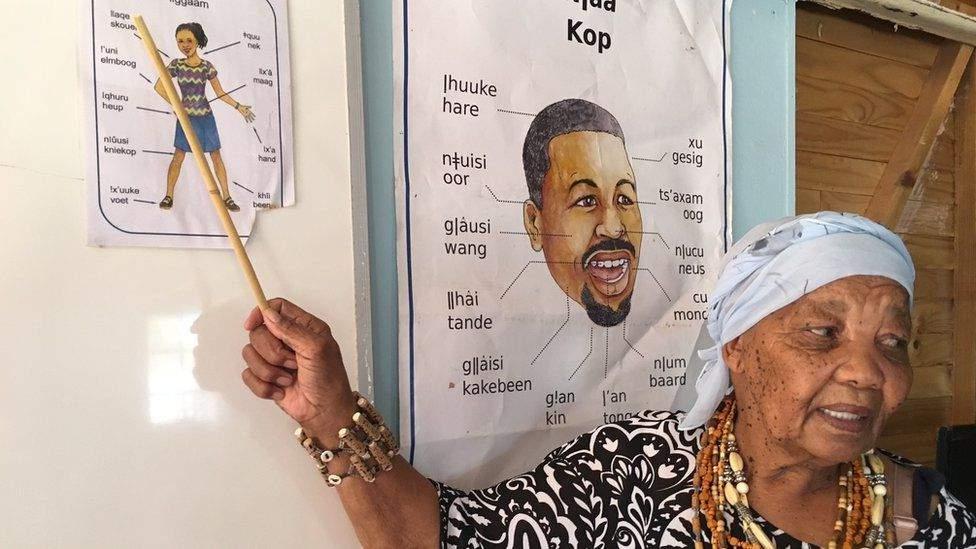
Language is a natural gift that is used for communication, social integration, identity and of course for the presentation of culture.
One of Africa's greatest admirable attributes is its diverse indigenous languages as the continent boasts of more than two thousand languages.
The diverse languages are part of the reasons why the continent is described as one with rich cultural history and heritage.
It is often in the interest of the people to make use of their languages as often as possible because not doing so would be leading to the extinction of such
languages, therefore, it is encouraging for people to pass their language from one generation to another
Unfortunately, African indigenous languages are seen to be fading away as it is being threatened by many factors such as; urbanization, lack of support of the languages by the educational systems, the media, national policies, disregard by the speakers of the languages and other socioeconomic factors.
African cultural languages are vastly becoming extinct at an alarming rate and it was to this end that the United Nations Educational
Cultural and Scientific Organisation (UNESCO) predicted in 2012 that the Igbo language in South Eastern Nigeria might become extinct by 2025 except something is done about it.
When this prediction was made, the Igbo language had a population of about twenty-five million speakers. This language and many other African languages with a lesser population of speakers are suffering and are feared to be going into extinction.
Therefore, it's a necessity for the government, stakeholders, citizens, policymakers and everyone to work towards preserving Africa's
AFRICAN MAGAZINE LEADERSHIP www africanleadershipmagazine co uk
EDUCATION
577 P A G E
Indigenous languages.
To continue to see that these African indigenous languages exist, certain things need to be done. Some of these are;
To preserve the African indigenous languages and prevent them from going into extinction some major steps need to be taken as mentioned below;
Government Support and Investment
African governments need to support and invest in indigenous languages.
Over the years, most governments have invested little or nothing in the resources needed to teach indigenous languages in schools hence the lack of adequate materials to teach African indigenous languages in schools. With this comes the relegation of indigenous languages.
Research has shown that learners absorb contents faster when taught in their native home language and that this improved absorption of knowledge and equips them with higher chances of success.
Therefore, investing in the development of indigenous languages and supporting the development of teachers of the language should be taken seriously by individual governments on the continent.
Using Innovative Initiatives
It's time for policymakers, stakeholders and lovers of mother tongues to be innovative in terms of preserving African Languages. Though, many innovations towards preserving Africa's Indigenous languages are already in place, Africans can do better
For instance, the Pan South African Language Board has started work on the production of a Siswati language dictionary to assist teachers of the language.
The project includes plans to
create a system of mathematical notations in siSwati.
In Kenya, in supporting the growth of indigenous languages, a new television station was launched to serve the Rift Valley region, home to the Maasai, Samburu, Pokot and several other indigenous groups.
The station will air primarily Christian programs and will broadcast to local communities in 10 indigenous languages, including Kalenjin, Kikuyu, Luhya, Luo, Gusii, Pokot, and Sabot/Marakwet.
In South Africa, business software that translates many of the country's native languages has been launched.
The goal is to make it easier for local businesses to use and modify software programs, thereby removing the sometimes, unbearable necessity of learning English language to use a computer
Project planners hope that the translations will also stimulate greater pride and interest in African languages.
Build More Speakers of Africa's Indigenous Languages
It is discouraging to know that Africa's oldest and most complex languages are not in large numbers anymore.
The extremely low number of younger speakers of these and other endangered languages means it is unlikely that they will still be spoken 50 years from now
In other, for this narrative to change, programmes, where these languages are specially studied, should be put in place.
It is cheering to know that Linguists are working with the few remaining speakers of languages such as N|u in South Africa and Ongota in Ethiopia to document and preserve their structures, and to reignite interest among younger generations.
Without wasting more time, policymakers should begin to move
out of their comfort zones and take cognisance of the costs of not taking swift action concerning the preservation of Africa's Indigenous language.
Due to lack of support, more African languages have faded, and with it goes the rich heritages that they represent.
The onus is on African leaders and decision-makers to provide the right contexts and ecosystems for African youths to rise to the challenge of taking the continent forward and helping Africa realise its growth potential.
Countries around the world have embraced the benefits of offering education in students' home languages. The African continent can follow suit to enjoy these benefits as well.
For the continent not to keep losing its fundamental history, this is the time for it to start developing sustainable and practical solutions to incorporating these languages into its education systems, communication and media networks, business environments and social settings.
One of Africa's greatest admirable attributes is its diverse indigenous languages as the continent boasts of more than two thousand languages
EDUCATION AFRICAN MAGAZINE LEADERSHIP www africanleadershipmagazine co uk
58 P A G E
Adopting Modern Models of Education for African Institutions
A nation's growth is dependent on sound education and strengthened systems. To cope with the modern world and the knowledge-driven era of technology, adopting modern ways are the only means to survive in the educational world. Education has enormous benefits and provides greater opportunities for all people hence must be a prioritized possession of any continent.
The minister of education of Sierra Leone David Sengeh, who is co-chair of the 2022 Educational Summit's Advisory Committee made a profound statement concerning reimagining education in Africa and this should be a heart cry of all governments, civil society, students, and young people inclusive. Education in Africa is not the best to speak of as Africa's educational system continues to experience challenges and crises in the areas of equity with regards to the ratio of males to females, quality with regards to students not reflecting and producing what has been taught then as well as teacher efficiency and relevance with regards to the outdated educational systems due to the rapid transformation of society
from a manual to a technological one.
The future success of the African continent lies in its youth and how these youth would transform future generations through the current impact they make in society. Education is an effective means to shape the future of the next generation. Investment in education also presents itself as an effective way to the fight against poverty because the ability to hone the skills and talents of the growing youth population will translate into its socioeconomic development. Society has evolved over the years and so has education across the globe. The educational system has transformed from only being held in a physical space to a virtual space now. Hence, the current education system in Africa needs to be modified to meet the modern demands of education to prepare the youth for a better future.
TRANSITIONING TO A DIGITAL EDUCATIONAL MODEL
Across Africa, access to and the usage of technology and digital tools has been a major

EDUCATION AFRICAN MAGAZINE LEADERSHIP www africanleadershipmagazine co uk
59 P A G E
challenge. There have been issues with internet access, access to mobile phones and mobile internet services, the creation of innovative technology as well as being abreast with basic digital literacy. These lope holes continually challenge the modern reforms in educational institutions. To bridge this gap created as a result of digital transformation, there should be a major investment in Information Communication Technology (ICT), infrastructure to suit this new development and strategic partnerships for internet services and range of technological fields. The various governments must ensure a collaborated effort between their national ICT and Education policy frameworks. This would be fundamental to identifying the right means of education delivery. Investing in digital education, digital literacy and online learning opportunities is crucial for a positive revolution which can facilitate the expansion of digital learning. The world has advanced in the knowledge of science and technology. The existence and activities of man has been made easier and simpler and the ability to adapt to new knowledge in science and technology has also increased therefore the need for the educational system to adopt this model for its institutions. The educational system needs to embrace Science Technology Engineering and Mathematics (STEM). This model of education encourages innovation and innovative and creative minds explore unknown and unrevealed areas of different fields in this current world. Adopting modern models means investing in research and development. Every institution should view research as a key factor in modern institutions because research is the basics for building innovative and creative ideas. Hence being research based oriented is vital in the African continent.
STEM EDUCATION FOR DEVELOPMENT

A collaborative effort by African countries could boost investment in digital technologies for learning. For example, through continental initiatives such as Africa Code Week, digital capacity through coding workshops and teacher training, and girls' digital skills has built, through partnerships with the public, private and non-profit sectors.
The practical aspect of education should be critical
to studies because practicality is needed in the working world. Education should prepare students to meet the demands of the business world. Years of traditional and impractical models of teaching have created a great gap between education and the working world as many have not been prepared for the job market. Africa has produced many graduates with book knowledge. The age in which the world finds itself can not enforce this ideology because book knowledge without practical knowledge has failed to meet the needs of this generation. Modern models which is practicals empowered should be embraced. The establishment of Technical Vocational Educational Training (TVET) and it being embodied in educational institutions will make the youth more prepared for the job market either as employees or entrepreneurs. Also, encouraging to TVET programmes can result in skill development which can be aligned with market needs, to nurture the future generations for the job market.
Initially, adopting these modern models will have a financial toll on the African continent because all the transitioning involves huge cost as most nations lack the necessary tools, equipment, establishment of
Institutions must also be willing to adapt to modern models. From basic school level, curricula can also be designed to further encourage non-cognitive skills such as critical thinking, creativity, and emotional intelligence
EDUCATION AFRICAN MAGAZINE LEADERSHIP www africanleadershipmagazine co uk 60 P A G E
infrastructure, common learning platforms and introduction of regulations that support innovation. and service for this successful transitioning. However, the current state of European nations and others which have adopted modern ways and scouting for improved ways to advance testifies of a better future for Africa and its generation since it would reflect in the socioeconomic development of the continent.
PRAGMATIC APPROACH OF TEACHING
Institutions must also be willing to adapt to modern models. From basic school level, curricula can also be designed to further encourage non-cognitive skills such as critical thinking, creativity, and emotional intelligence. Teachers need to possess higher skills as learning facilitators and instructional designers, using a wide range of technologies to meet students' varying needs. Teachers are in charge of training the young and the youth must also be equipped and adapt to changes and transitions in order to adopt these modern models and be adept with them. A pragmatic approach to learning is utilized. Teachers used to be repositories of knowledge who impart information by giving the what and not why and how of knowledge. Modern models require teachers to teach how to apply knowledge in practical settings. Both teachers and students should position themselves in such as way that it would give them an upper hand to adjust and adopt to modern models.
African institutions adoption of modern models will be beneficial to individual and collective groups because this model results in empowerment.
Experiencing practical knowledge trains students to understand the brain behind ideas which can be a reflection in their personal life. Being exposed to modern models enables one acquire analytical skills needed o face challenges in practical life more efficiently hence can contribute positively towards an improved life. This ultimately results in making good decision-makers who can contribute positively towards social growth. In addition, through this adoption technological advancements s rapidly experienced.
The transition of the educational system and the technological advancement of the society coupled with preparing the youth for the job market has cushioned the need for Africa's adoption to modern models in educational institutions. The willingness of Africans to become adept in these models will result in a better, improved and advanced continent which is analytical in all its progress.
the Mauritian tourist industry, positioned at the top of the global market, contributes significantly to the Island's gross domestic product

EDUCATION AFRICAN MAGAZINE LEADERSHIP www africanleadershipmagazine co uk
61 P A G E


BEYOND COP27:
BUILDING A RESILIENT CLIMATE CHANGE AGENDA FOR AFRICA

"The fight to defeat climate disasters and have a liveable planet must be won this decade". UN Secretary-General, Antonio Guterres.
The year 2022 has been a year of new weather extremes, food shortages, a hike in the price of fossil fuel, and rising costs of living in virtually all countries, with increased geopolitical tensions further stoking the crises. With each passing day, the impact of climate change shifts from predictions to reality
Although climate change is a global phenomenon, it is manifested differently in Africa. Never before have African countries felt such a sense of urgency to act, adapt and build resilience. But with recent disasters ranging from hunger and famine in Madagascar to the flood that swept Nigeria off its feet, Africa is unprepared.
A recent publication by the World Meteorological Organisation explained that East Africa has suffered a below average rainfall in four consecutive wet seasons, the longest in 40 years, with indications
that the current season could also be dry. As a result of the persistent drought and other factors, an estimated 19 million people faced food crises or worse levels of acute food insecurity before June 2022. Humanitarian agencies are warning that another below-average season will likely result in crop failure and further exacerbate the food insecurity situations in Kenya, Somalia, and Ethiopia.
Set against a backdrop of crises relating to climate, food, energy, health and debt across Africa, COP27 was thus, an opportunity to spotlight the African continent's special needs and circumstances. These crises indicate that for Africa, and developing countries around the world, it is no longer enough to mitigate the climate crisis. It presents a need and opportunity like never before to galvanise immediate, on-the-ground action in the countries that most need it. They need to adapt and build resilience, to survive and thrive. Africa, therefore, needs a sustainable approach to building a resilient climate change agenda for Africa.
While Africa has done the least to cause climate change, the continent's people, especially the youth, are suffering the worst impacts. The climate crisis is undermining hard-won development gains and deepening cycles of poverty, fragility and vulnerability across the continent. Thus, the most valuable contribution that developed countries can make is to reduce their emissions faster while investing in Africa to build a sustainable, green climate.
According to the African Development Bank, the continent already has an infrastructure financing gap of more than $100 billion per year. Against a background of increasing climate change impacts that are already costing the continent an average of 5% of GDP per year, Africa must invest in infrastructure resilient to climate change. Closing the infrastructure gap means investing up to US$170 billion per year in sectors such as energy, transport, water, sanitation, and ecosystems. These sectors are sensitive to the adverse impacts of climate change,
63 P A G E
ENVIRONMENT AFRICAN MAGAZINE LEADERSHIP www africanleadershipmagazine co uk
including more frequent and intense floods, droughts, and heat waves.
To avoid future disasters, more climate ambition is needed globally In Africa, this need is more acute than anywhere else.
Africa has made great efforts in driving the global climate agenda. This is demonstrated by the very high levels of ratification of the Paris Agreement. Many African nations have committed to transitioning to green energy. Africa's Agenda 2063, which was concluded in 2013, recognizes climate change as a major challenge for the continent's development. COP27 was a reminder of the commitments made to address the climate menace.
But beyond COP27, Africa needs a well-orchestrated and coordinated African agenda on climate change for a stronger climate change response. This requires visionary leadership and partnerships that enable Africa to speak with one voice, build resilience and secure sustainable food and energy systems. This will strengthen its international presence, its negotiating power and the attainment of its climate change goals.
While the African region has been consistent in its call for developed countries to support developing regions in addressing the financing, there is also a need for enhanced domestic resource mobilization and capacity development in support of Africanled and African-owned climate responses. African countries need to invest in climate adaptation and shift to a low-carbon growth path to support sustainable development. Strong climate action and increased climate financing will help countries realize their full potential.
One promising approach throughout the continent to reducing climate-related risks and extreme event impacts has been to reduce poverty by promoting socioeconomic growth, in particular in the agricultural sector. In this
sector, which employs 60% of Africa's population, value-addition techniques using efficient and clean energy sources are reported to be capable of reducing poverty two to four times faster than growth in any other sector
Around 70 per cent of the population in Africa are smallholder farmers with limited capacity to cope with climate shocks. Keenly aware that the risks posed by climate change could undo years of development gains, a significant majority of countries in Africa have increased the existing sectoral scope or added sectors for adaptation action in their Nationally Determined Contributions. Agriculture and land use are prioritized by many countries for adaptation action, as the dependency of livelihoods on agroecosystems remains high in the region.
Also, ensuring an inclusive and equitable shift towards low-carbon economies is paramount in Africa. Taking advantage of green growth to also create a just transition through decent job opportunities is vital for the future of Africa's youth, who make up 70 per cent of the continent's population. In the past few years, interesting developments have occurred on this front. Nigeria and Zimbabwe have paved the way for just transition mainstreaming by undertaking green jobs-related activities to inform their revised Nationally Determined Contributions.
Timely and accurate information is vital in building climate resilience across Africa. Digitalization within the context of the climate change agenda should be projected as a process that enables access to upto-date climate data for informed decision-making and service provision and ensures that the continent is ever-ready and able to rapidly adapt when required. To achieve this, a process of changing data from analogue to digital form is needed. With the foundation of digitization, actors such as individuals, businesses and governments will be able to
leverage digital innovations and business processes to transform climate responses and green economy development.
African countries can turn their natural capital into wealth. In central Africa, the Congo Basin is home to 70% of Africa's forests, which act as the world's largest carbon sink. Its forests are estimated to contain between 25 to 30 billion tonnes of carbon. It is one of the most important hotspots on the planet for valuable biodiversity, which is rapidly depleting, as well as a major source of livelihood for the poor, through food, forest produce, and fishing. The Congo Basin represents the first line of defence against climate change. However, with the support of the global community, the region will need to translate this asset into revenue streams locally, nationally, and globally
Countries in the region such as Gabon and the Republic of the Congo are proactively addressing land degradation. They experience first-hand the benefits of carbon sequestration for job creation and enhanced climate resilience. Ensuring African countries' participation in carbon markets will be the next priority to leverage additional climate finance.
Recognizing that the cost of inaction is far greater than the cost of action is a major point. For all Africans living the reality of climate change, it is imperative to reinforce collective efforts and turn the climate crisis into an opportunity Africa must ensure that beyond COP27, their voices are heard and a resilient climate agenda is set for the continent.
64 P A G E ENVIRONMENT AFRICAN MAGAZINE LEADERSHIP www africanleadershipmagazine co uk
Tourism EconomicInspiredGrowthThe Story of Mauritius. Beyond Description, Mauritius Is Breathtaking
Rich in stunning white sand beaches, magnificent crystal clear turquoise lagoons, natural waterfalls, unusual animals, rugged mountains, and other tourist attractions. Both natural and artificial sights of every kind can be found on the Island.
In addition, it features a subtropical temperature, picture-perfect beaches, tranquil seas, tropical flora, and animals, as well as diverse people that are hospitable and accepting.
These tourism-related resources are Mauritius' most significant asset, especially since world-class beach resorts, hotels, operational services, and architecture support them.

And for this reason, behind the industrial industry
and agriculture, tourism is Mauritius' third most important economic sector
The Island's economy has grown dramatically due to the tourist industry, which has also played a crucial role in Mauritius' overall development.
In reality, visitor arrivals during the last two decades have climbed at an average annual rate of 9%, while tourism-related revenue has increased by roughly 21%. As a result, a little over 14% of Mauritius' GDP came from tourism.
The "opening of the skies" action plan is a new approach that its government has embraced to grow the local tourism sector
The fundamental goal here is to create new
67 P A G E
ECONOMY AFRICAN MAGAZINE LEADERSHIP www africanleadershipmagazine co uk
markets, which includes expanding into new nations and attracting new types of customers.
Additionally, to increase the number of rooms available on the Island, the Mauritius government promotes the construction of new hotels.
And as a result, tourism has emerged as one of the most significant and rapidly growing sectors of the global economy
The economy of a nation benefits significantly from just this one industry

A boost in tourism can help the nations' economies, especially in terms of GDP and employment opportunities. However, the objective of this effort is to travel to the locations without putting the locals or the environment at risk while positively impacting society, the ecology, and the country's economy
Tourism may include the following elements: travel to the location, local transit, hotel, leisure, entertainment, shopping, and dining.
Travel for work, leisure, family, or friends may be included.
Although there is disagreement about how to accomplish this, there is a consensus that tourism expansion should be sustainable.
Consequently, the travel and tourism industries play a significant role in the global economy
And for this reason, the tourist sector continues to play a significant role in creating jobs and money in many nations' formal and unofficial sectors.
For instance, the Mauritian tourist industry, positioned at the top of the global market, contributes significantly to the Island's gross domestic product (GDP).
Additionally, FDI has dramatically benefitted the diversification of the Mauritian
economy and the Island's economic expansion.
The economy has also benefited from FDI in several ways, including increased productivity, technological advancements, adopting new practices, managerial abilities, and market expertise.
With its GDP per capita rising from US$260 in 1968, the year of independence, to more than US$7000 in 2013, Mauritius is most of the time known to be one of the wealthiest and most successful African economies. For the past 25 years, the country's economy has grown almost continuously at about 5% annually
Given its limited domestic market, the Mauritian economy's performance can be mainly attributable to its trade openness policy
On the other hand, sugar, textiles, and tourism have historically been vital components of growth.
In addition, the economy has expanded into financial services, information technology, and computer science while maintaining its historic industry basis.
Bold reforms were implemented in 2005 by the nation that altered the environment for commercial activity in Mauritius. These included labour reforms, revisions to legislation relating to the ease of doing business, and the liberalization of tariffs (the idea of a duty-free island).
The significant infrastructural investment was also made in the economy, and there was broad agreement about switching to more significant value-added industries.
Therefore, these reforms have helped to strengthen and increase the economy's competitiveness.
The Mauritian story, however, is built on five pillars: political leadership, robust institutions, ethnic diversity, a class of local entrepreneurs, and a well-organized
private sector that regularly engages the government in policy discussions.
Along with this, the revolution has always ensured a balance between social and economic goals, emphasizing human capital through free healthcare and education and a minimally adequate social safety net for the most vulnerable.
After the previous year has closed, Trading Economics global macro models and experts anticipate that foreign direct investment in Mauritius will reach 19000.00 MUR Million.
The econometric models predict that over the long term, foreign direct investment in Mauritius will trend around 19000.00 MUR Million in 2023.
tourism-related resources are Mauritius' most significant assets, especially since world-class beach resorts, hotels, operational services, and architecture support them.
ECONOMY AFRICAN MAGAZINE LEADERSHIP www africanleadershipmagazine co uk 66 P A G E
COVID-19: Over 76 million Nigerians Vaccinated Says Health Minister
Nigeria's Minister of Health, Dr Osagie Ehanire, says that over seventy-six million Nigerians have been vaccinated against the dreaded COVID-19 virus adding that there are no increased reported cases of the virus in the country. He stated this in response to the increasing COVID-19 cases being experienced in China and other countries.
The minister who spoke with African Leadership Magazine and others at the ministry's headquarters in Abuja, Nigeria, recently said the sub-lineages partly responsible for the current increase in COVID-19 cases in other
countries, such as XBB.1.5 and BF.7 COVID-19 variants were yet to be detected in the country base on reports gotten in November 2022.
The health administrator also said that, based on confirmed data, COVID-19 has continued to follow a different epidemiological course in Nigeria and most of Africa, with fewer cases, admissions, and deaths from the Omicron sub-lineages.
While calling on Nigerians to complete their vaccine doses and also go for booster jabs because it has been proven to strengthen immunity,
He added that The Nigeria

Centre for Disease Control (NCDC) led COVID-19 emergency operation unit was closely monitoring the rise in the new Omicron sub-lineages XBB.1.5 in the UK and US, as well as the current resurgence of COVID-19 trends in China and other countries with a high volume of traffic to and from Nigeria.
Ehanire said administering of booster shots was now being encouraged by the Federal Government of Nigeria because of the affirmation by The World Health Organization that those with vaccine booster shots were less likely to fall sick or die from COVID19 infection.

HEALTH AFRICAN MAGAZINE LEADERSHIP www africanleadershipmagazine co uk
67 P A G E
While providing updates of COVID-19 infections and treatment, The Nigeria's Health Minister said: “In Nigeria, we have had 5,708,974 samples tested, 266,463 confirmed cases, 259,850 discharged cases and unfortunately 3,155 deaths have been recorded in 36 states and the Federal Capital Territory (FCT).”
“We are working to complete testing and analysis for December 2022. Since the detection of the Omicron variant in December 2021, its sub-lineages (BQ.1/BQ.1.1) have been dominant in Nigeria also, as seen in other parts of the world.

“It is important to note that regardless of COVID-19 variants in different parts of the world, severe disease, admissions, and deaths disproportionately affect the unvaccinated and those with established risk factors,” he said.
The minister asserted that the most important action for Nigerians to take was to get vaccinated against COVID-19, as the vaccine remains the most important intervention for preventing severe disease, hospitalisation, and death.

Furthermore, he said though the COVID-19 protocols and restrictions have eased, people at high risk for severe COVID-19 were advised to
continue to adhere to the recommended non-pharmaceutical intervention (NPIs) such as the use of facemasks, good hand and respiratory hygiene and avoidance of crowded spaces.
Ehanire later stated that due to the refusal of most inbound passengers to use the online platform to declare their vaccination status, a decision to enforce regulations at the international airports would be handled more strictly

From the National Primary Health Care Development Agency (NPHCDA) records, as of Monday, January 9, 2023, 76,161,470 eligible
persons have received the first dose of the COVID-19 vaccines in Nigeria, representing 65.7 per cent of Nigeria's eligible population.
64,094,498 persons have been fully vaccinated, representing 55.3 percent of the nation's eligible population, and 9,892,018 have received booster doses.
The World Health Organization and several renowned medical experts worldwide have said that in contending against COVID-19, vaccination remains an important intervention for preventing severe disease, hospitalisation, and death.
HEALTH AFRICAN MAGAZINE LEADERSHIP www africanleadershipmagazine co uk
68 P A G E
YOUNG AFRICAN CEO'S SHAPING THE BUSINESS WORLD
In African communities, attaining leadership has long been justified by the idea that maturity develops with age. As a prime example, in ancient times, leadership duties were separated according to age, with the old being seen as leaders in their spheres of influence.
But with time, everything changed. Young people today are attempting to fill leadership positions formerly held by seniors, a development yet to be well embraced by the old.Despite all the challenges, youngsters are urged to take on leadership roles to represent their demographic and help them develop into excellent future leaders.
For this reason, Mr Jolson Masaki, 29, a former chairperson of the Youth United Nations and an information analyst, asserted in an interview with Success that adult oversight of youth leadership opportunities frequently results in missed opportunities for youth to take the lead, whether consciously or unconsciously. However, despite this, the outcomes are usually the same: a missed chance for child to assume leadership.
As a result, The African Leadership Magazine has selected some of the top young African CEOs who will soon have a significant impact on the development of Africa.
The top 100 individuals were chosen based on their dynamism, remarkable track records, and active involvement in the rise of Africa as a significant player in the world economy.
Here are some of the top five african CEO's shaping the business world.
Of course, the first one is Mohamed Dewji of Tanzania, who serves as the CEO of Mohamed Entreprises Tanzania Ltd. Other than that, he is a former politician and rich businessman from Tanzania. He was a Member of the Tanzanian Parliament for Chama Cha Mapinduzi (CCM) from 2005 to 2015, representing his hometown of Singida. He is the proprietor of the MeTL Group, a Tanzanian conglomerate created by his father in the 1970s. Dewji was the 17th richest person in Africa and the youngest billionaire as of October 2022, according to estimates of his net worth of US$1.5 billion. In 2013, Dewji became the first Tanzanian to appear on the cover of Forbes.
In 2014, Dewji founded the Mo Dewji Foundation. In addition, Dewji pledged to contribute at least half of his wealth to charity, either during his lifetime or in his will, when he signed the Giving Pledge.

Nigerian rich businessman Mr. Sanomi was born in 1975 and has interests in oil, power, logistics, telecommunications, the marine industry, aviation, and real estate. In addition, he works as a geologist, a public speaker, and a benefactor

Sanomi is the chairman of the Dickens Sanomi Foundation (DSF), which he

BUSINESS AFRICAN MAGAZINE LEADERSHIP www africanleadershipmagazine co uk
The second one is Nigerian Igho Sanomi.
69 P A G E
and his siblings established in 2011 to honor their late father. The DSF only conducts business in Nigeria thanks to funding from the Taleveras Group and the Midel Group.

In addition to receiving the Martin Luther King Legacy Award for generosity, Sanomi has allegedly promised a "significant gift" through the Dickens Sanomi Foundation to the Bobby Moore Fund for cancer research in the UK "to help fund essential prostate cancer research.
The foundation also donated money to Oxfam and Save the Children. In addition, Sanomi was chosen to serve on the advisory board of the West Africa Book Development Fund. He succeeded the late Ade Adefuye as the honorary chair of the Martin Luther King, Jr. International Salute Committee.
Igbinoba Jennifer, sometimes called Jenny's Glow, is third in line. She is one of Nigeria's most prosperous skin care and beauty business owners. She humbled herself to enter the field of the beauty industry and now owns some of the most amazing discoveries and best-selling skin care and beauty products in the country. She started the company in 2017 and has since opened outlets throughout the nation. She recently opened Hair by Jennysglow, a high-end wig shop. She has several well-known influencers working as brand ambassadors. She is undoubtedly well-known in the skincare and beauty sectors.


Teta Isibo, 32, the founder of the Rwandan company Inzuki Dbees," and their store is in the center of Kigali.esign, which specializes in jewelry, accessories, and home decor, is also named by Forbes as one of the continent's most promising young businesspeople.


Teta collaborates with regional women's cooperatives to produce colorful, high-quality crafts by hand utilizing local materials at Inzuki Design.
Locally, "Inzuki" means "bees," and their store is in the center of Kigali.
BUSINESS AFRICAN MAGAZINE LEADERSHIP www africanleadershipmagazine co uk
70 P A G E

